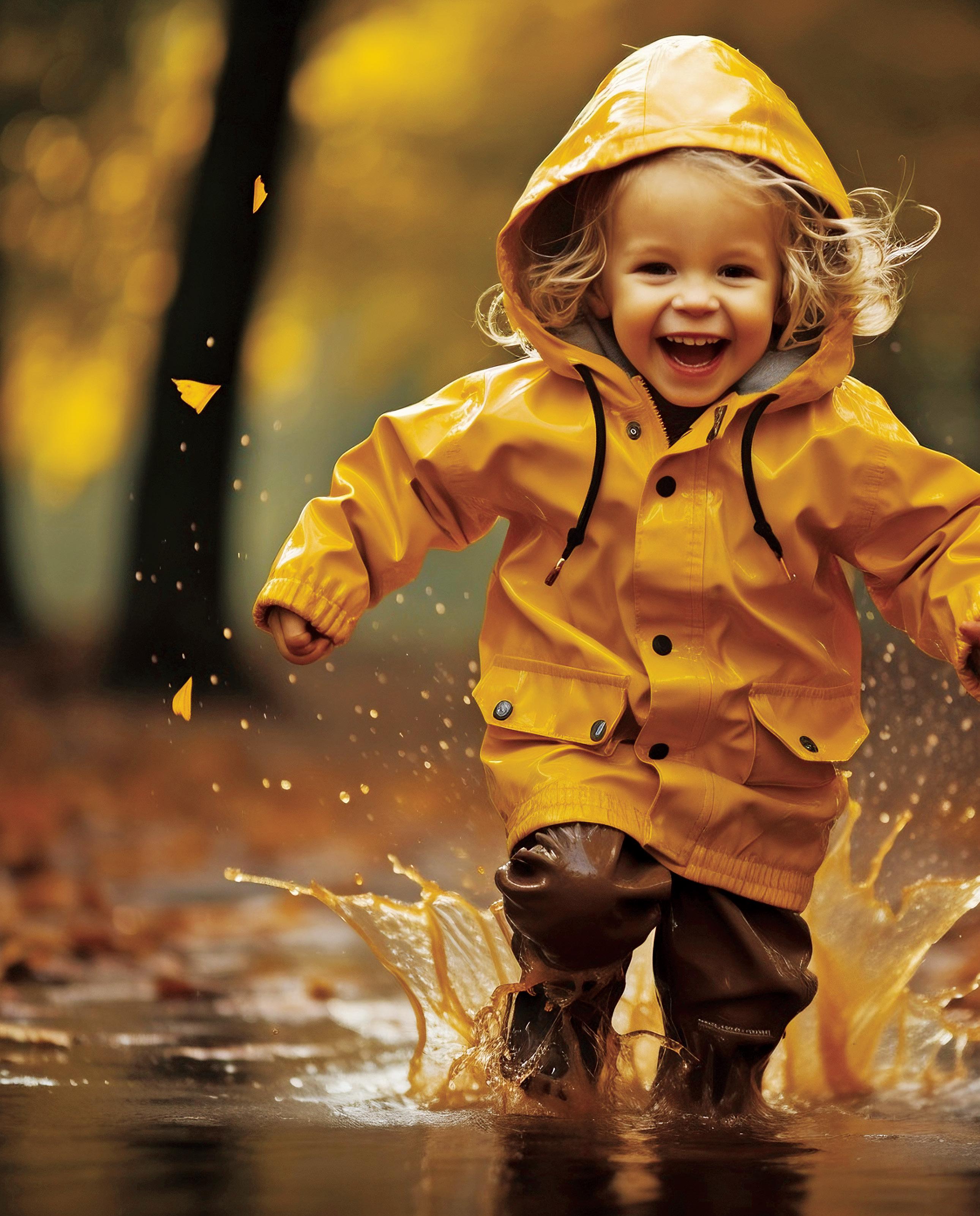
Celebrating the modern family lifestyle on the West Coast FALL 2023 WESTCOAST FAMILIES.COM Vol 31, Ed 2 Free! 20 Ways Sleep Habits to ‘Fall Back’ On Confessions of a Sports Dad TO GET READY FOR WINTER Inside!





2 WestCoast Families .com

Fall 2023 3
Jim Schneider Publisher publisher@westcoastfamilies.com
Sue Fast Editor editor@westcoastfamilies.com
RaeLeigh Buchanan Account Manager raeleigh@westcoastfamilies.com

Kristine Wickheim Account Manager kristine@westcoastfamilies.com




For distribution inquiries, please email publisher@westcoastfamilies.com
WestCoast Families, published by Island Parent Group Enterprises Ltd., is a bimonthly publication that honours and supports parents by providing information on resources and businesses for west coast families. Views expressed are not necessarily those of the publisher. No material herein may be reproduced without the permission of the publisher.

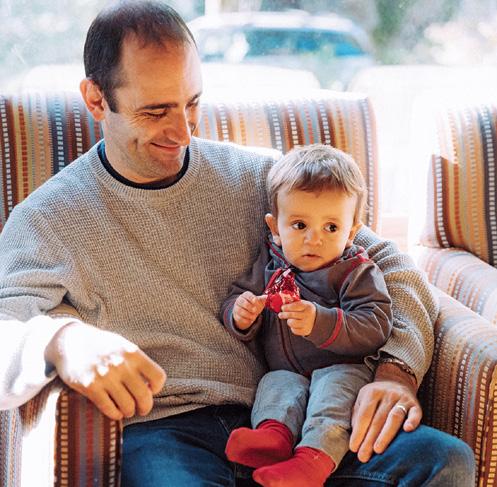
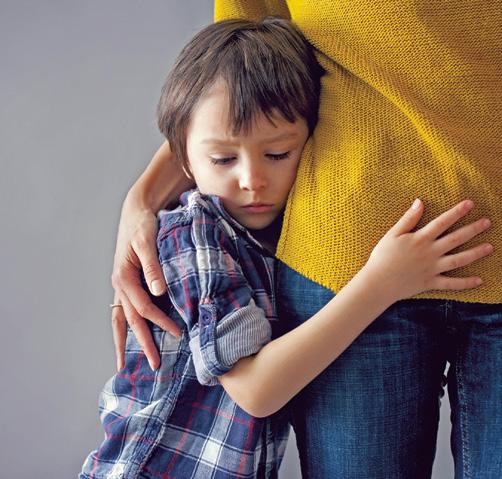



Mailing Address 518 Caselton Place, Victoria, BC V8Z 7Y5 250 388 6905


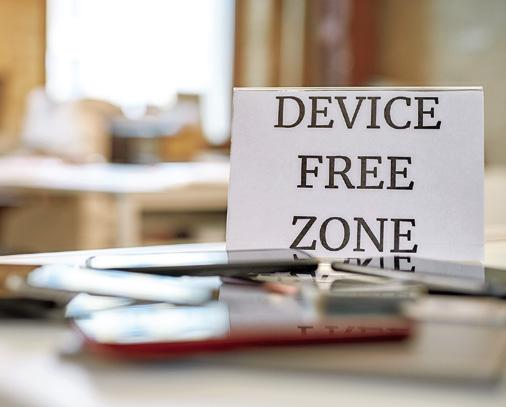

A proud member of BC

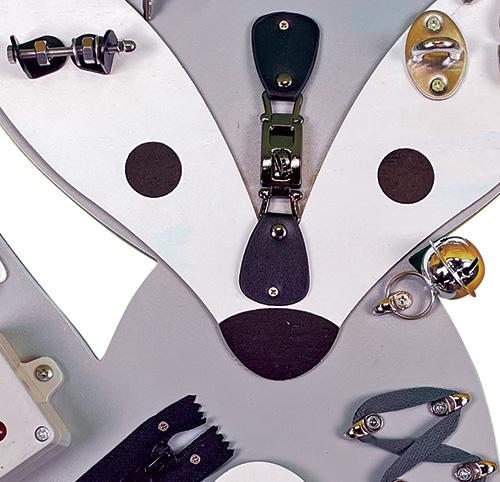
FALL 2023 Vol 31, Ed 2 twitter.com/wcfmag facebook.com/westcoastfamilies pinterest.com/wcfmag @westcoastfamilies IN THIS ISSUE WestCoastFamilies.com FRESH FINDS WHAT’S NEW? 6 8 ALL KIDS MIGHT NOT 16 10 12 14 SPORTS DAD FINDING LIGHT YOU MATTER SLEEP HABITS WINTERIZE YOUR FAMILY 20 18 PLAY 26 PUT YOUR PHONE AWAY THEIR OWN NORMAL SOCIAL MEDIA NURTURING YOUNG FAMILIES 22 4 WestCoast Families .com
29 28 30
What We Remember
What do you remember about your childhood? While there are bound to be the big-ticket memories—like a holiday in Disneyland or a cross-Canada road trip—it’s often the little things that stand out.
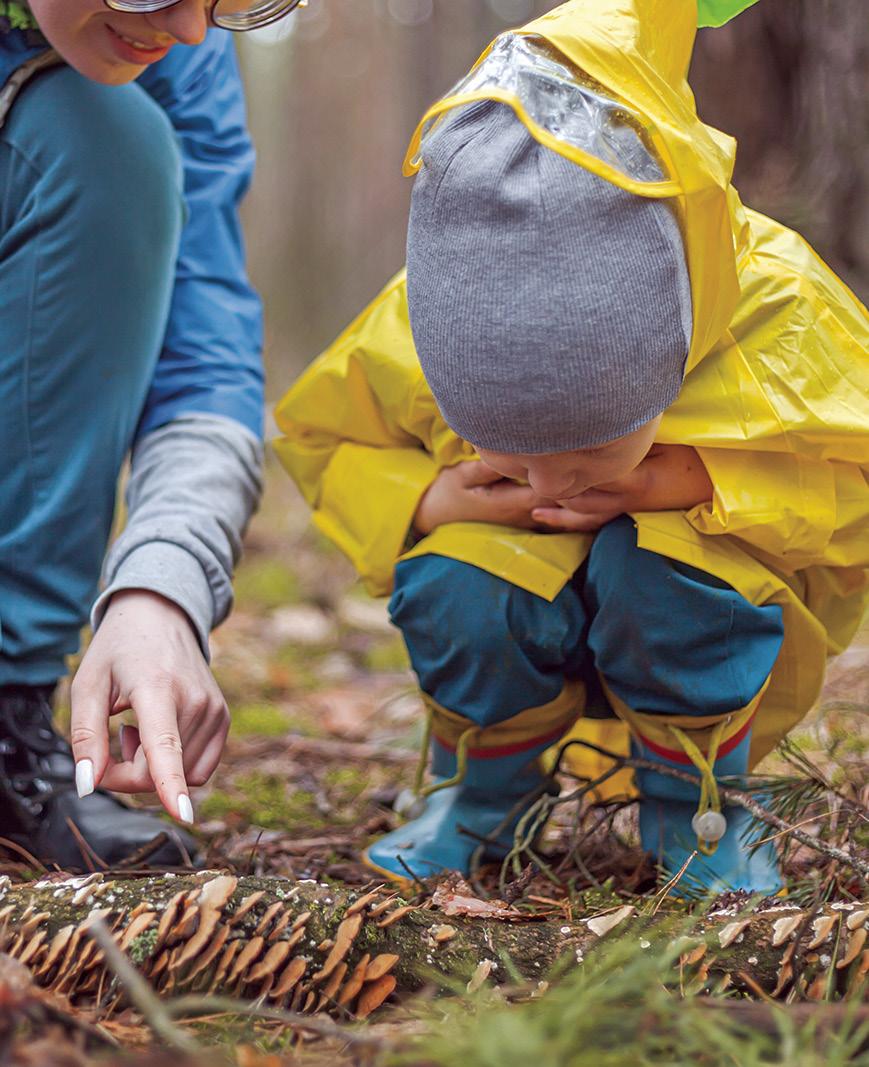

“Sometimes the activity is quite distinctive, such as building a tree house together,” writes Krystine I. Batcho, professor and author of Longing for Nostalgia. “Often, though, it is as commonplace as playing catch, getting ice cream or going to lunch after a music lesson or sports practice.”
The most memorable experiences are more about the relationship we have with our kids, she says.
“In a world of competing obligations, it can be easy to forget the need a child has to feel special,” says Batcho. “What activity fills the time together is less important than the fact that the time spent was spent together.”
We remember the difficult times as well as the happy ones.
“Even during the most difficult of circumstances, parents have the opportunity to give their child the most important gifts—the assurance they are loved, the wisdom to appreciate what is most valuable, a model for coping with adversity with dignity and understanding that suffering can be meaningful when endured as part of living for loved ones.”
The “ordinary” can overshadow the extravagant in memorability and lasting value, she adds. A walk in the rain. Singing together in the car. Playing in the autumn leaves. Each of these things can create lifelong memories. And later on, it will be the small things that evoke these memories. A photo. A song. A scent.
As the holiday season approaches, here’s to celebrating the little things, spending time together and making sure each child feels special.
From Our Family to Yours.
Fall 2023 5 FROM OUR TO YOURS
GRAB YOUR ANNUAL PASS NOW LOVE IMAX® AND THE ROYAL BC MUSEUM? LEARN MORE AT RBCM.CA/COMBO-PASS $59EARLYPRICINBIRD G Available Nov.1–30
Peace Crane Project
The Peace Crane Project invites every student on the planet to fold an origami crane, write a message of peace on its wings, then exchange it with another student somewhere in the world. The project builds friendships, strengthens hand-eye coordination and writing skills, teaches geography, exposes students to new languages and cultures and empowers youth to make a difference in their community, country and world. To participate visit peacecraneproject.org.
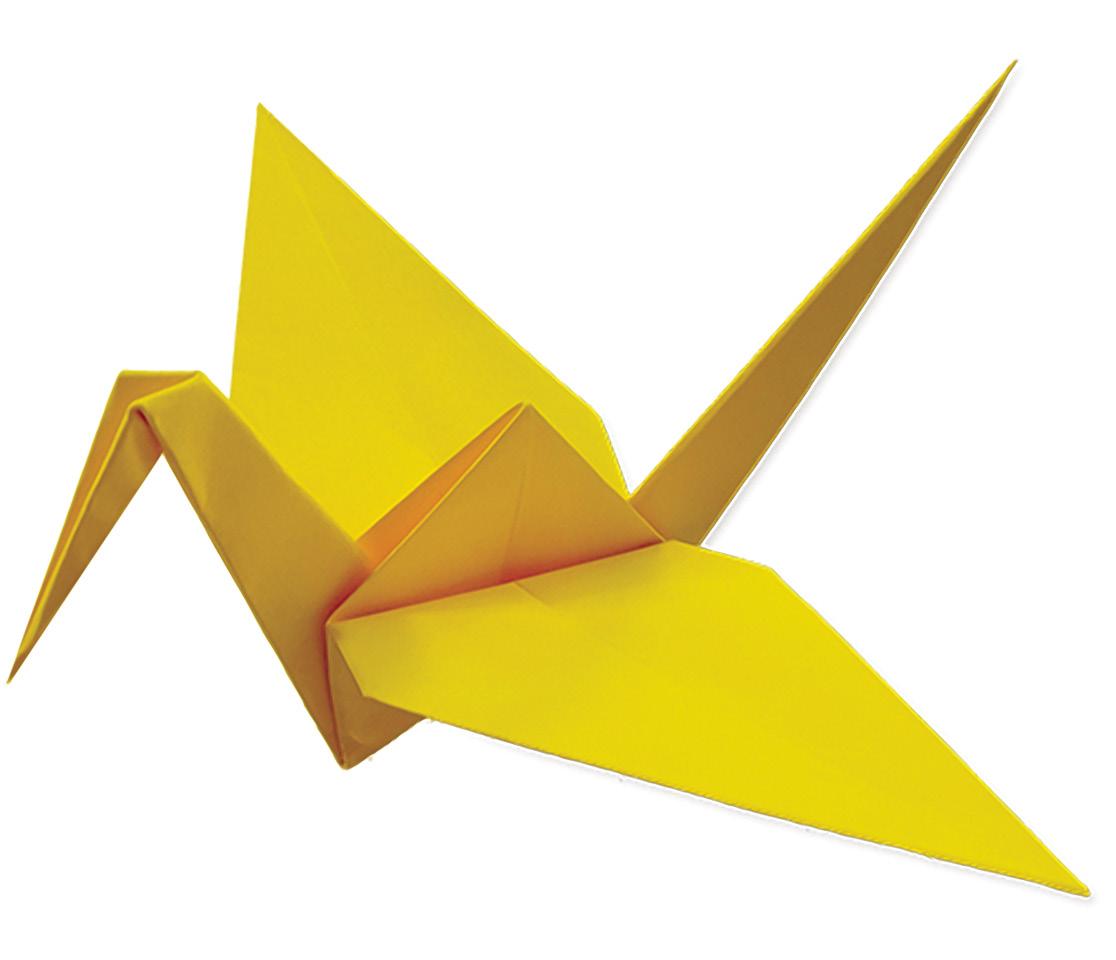
Vancouver Writers Fest

Students from kindergarten to grade 12 in Vancouver and across BC can interact with celebrated writers through a variety of programs at the Vancouver Writers Fest from Oct 12–22. Discover how your kids can engage with world-renowned writers or keep up to date on the latest, recommended releases. For a schedule of events visit writersfest.bc.ca/youth
Media Literacy Week
This annual national event promoting digital media literacy across Canada takes place from October 23–27. Media Literacy Week (MLW) is an annual national event hosted by MediaSmarts in partnership with the Canadian Teachers Federation to promote digital media literacy, with activities and events taking place in classrooms, libraries, museums and community groups from coast to coast to coast. For more ideas and printable activities, visit mediasmarts.ca.

WHAT’S NEW?
6 WestCoast Families .com
Youth Remembrance Contests
Honour Canada’s Veterans and foster the tradition of Remembrance through visual art, writing, and video. Poster Contest participants create and submit original artwork in colour or in black and white; Literary Contest participants create and submit original essays or poems; video contest participants create and submit original videos. For more information or to register, visit remembrancecontests.ca.

National Child Day
November 20 is National Child Day in Canada, also celebrated across the globe as World Children’s Day. On November 20, 1989, the United Nations adopted the Convention on the Rights of the Child (CRC), a promise to children to protect and promote their human rights. On this day, “Go Blue” for children and youth. Monuments across the country will light up blue, people will wear blue and many voices will take to social media to champion the day online. National Child Day is a day for children, by children— a chance to hear from children and youth about what matters to them. For a Blue Toolkit, visit oneyouth.unicef.ca
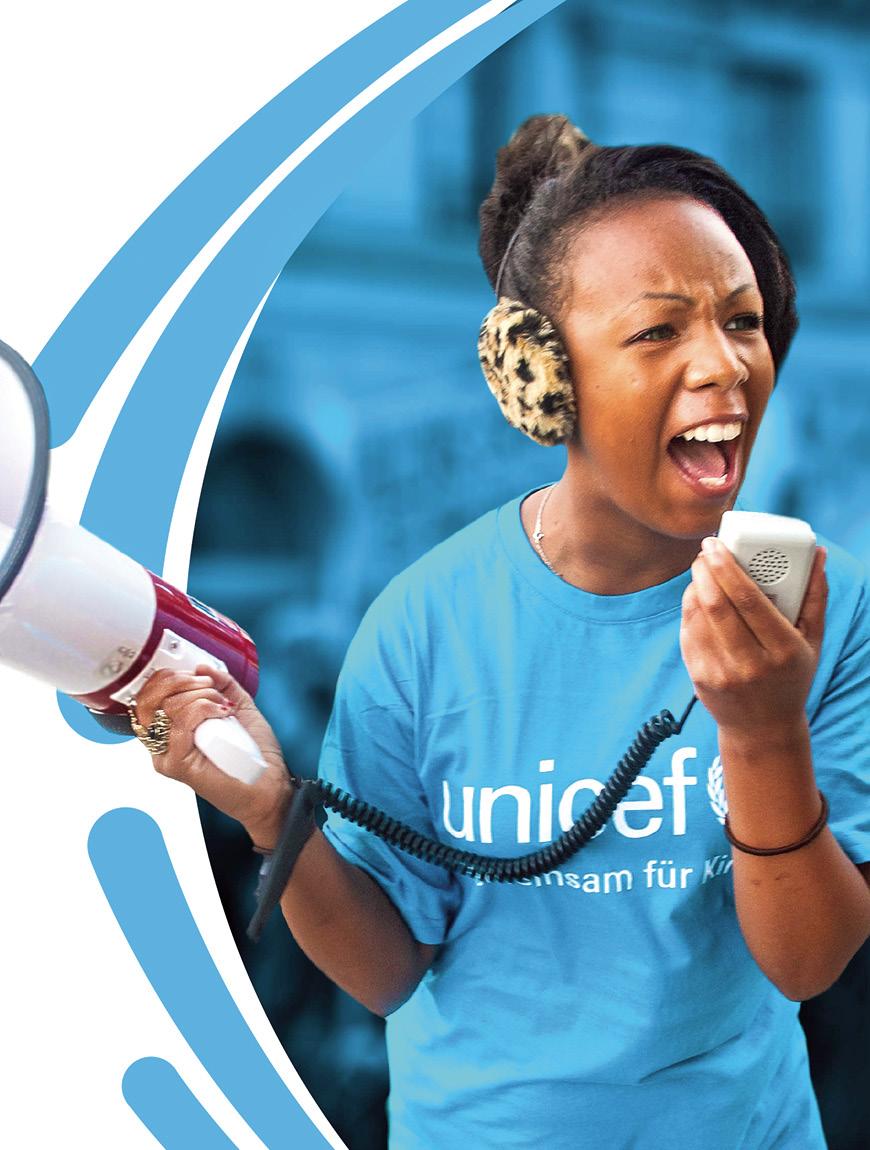
Fresh Finds
Ideally, all toys honour the play and learning needs of all children. Here from Indigenous Inclusive Education—a 100% Indigenous-owned company— is a variety of educational toys that support and are inclusive of all learners.

Rainmaker
This fun 20-inch Rainmaker is made of beech wood ensuring a realistic rain sound effect to help children relax or de-stress. The Rainmaker makes a terrific rain-pounding-on-the-window sound each time it’s turned over.
Hand Drum & Drumstick

This 16-inch leather hand drum with drumstick is perfect for teaching young children the importance of drumming and learning rhythm. The drum features a crossbar design for easy handling and holding. Fixed metal rivets and polyester edging for long lasting durability.
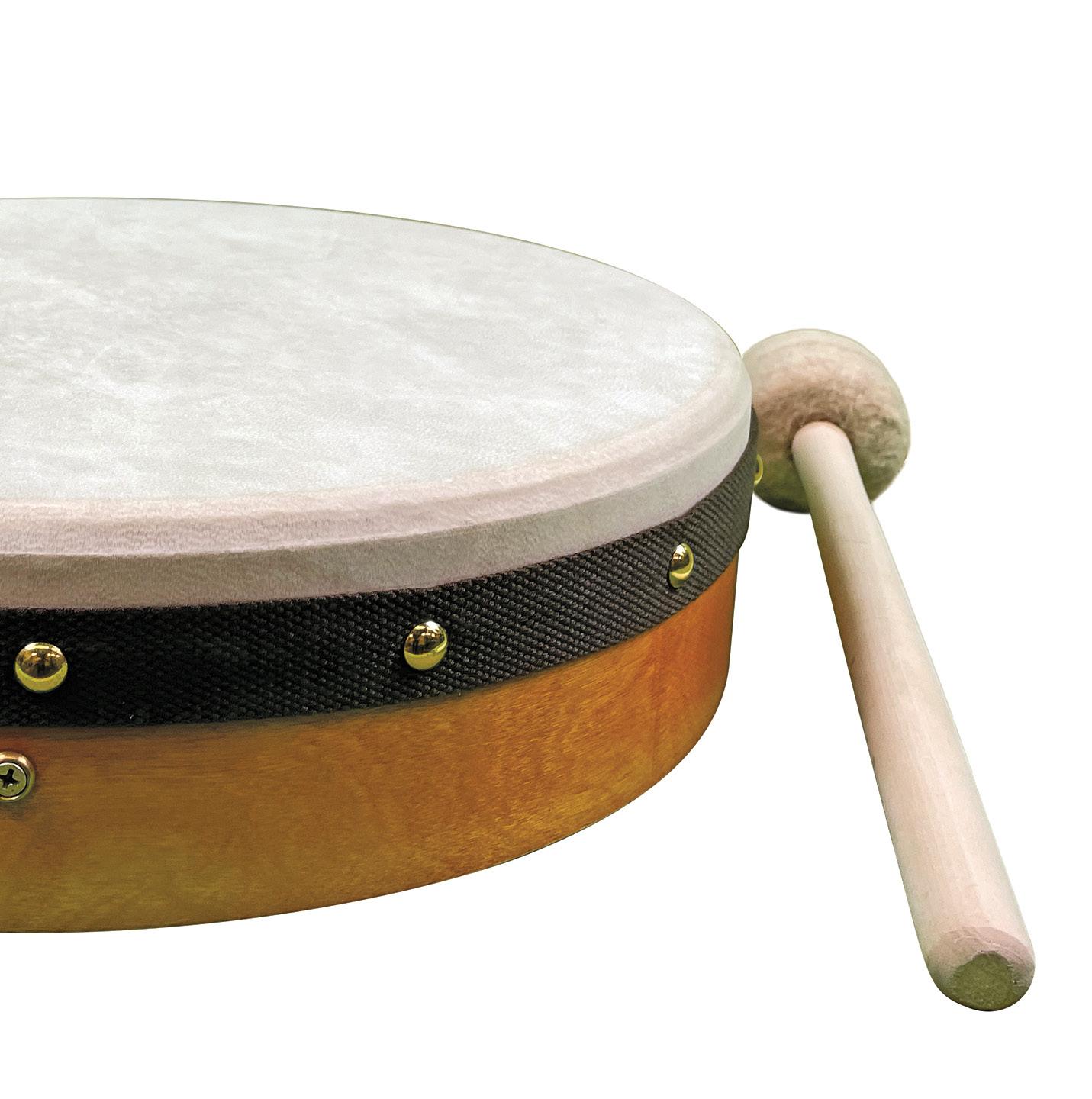
SHOP
8 WestCoast Families .com
Arctic Fox Busy Board
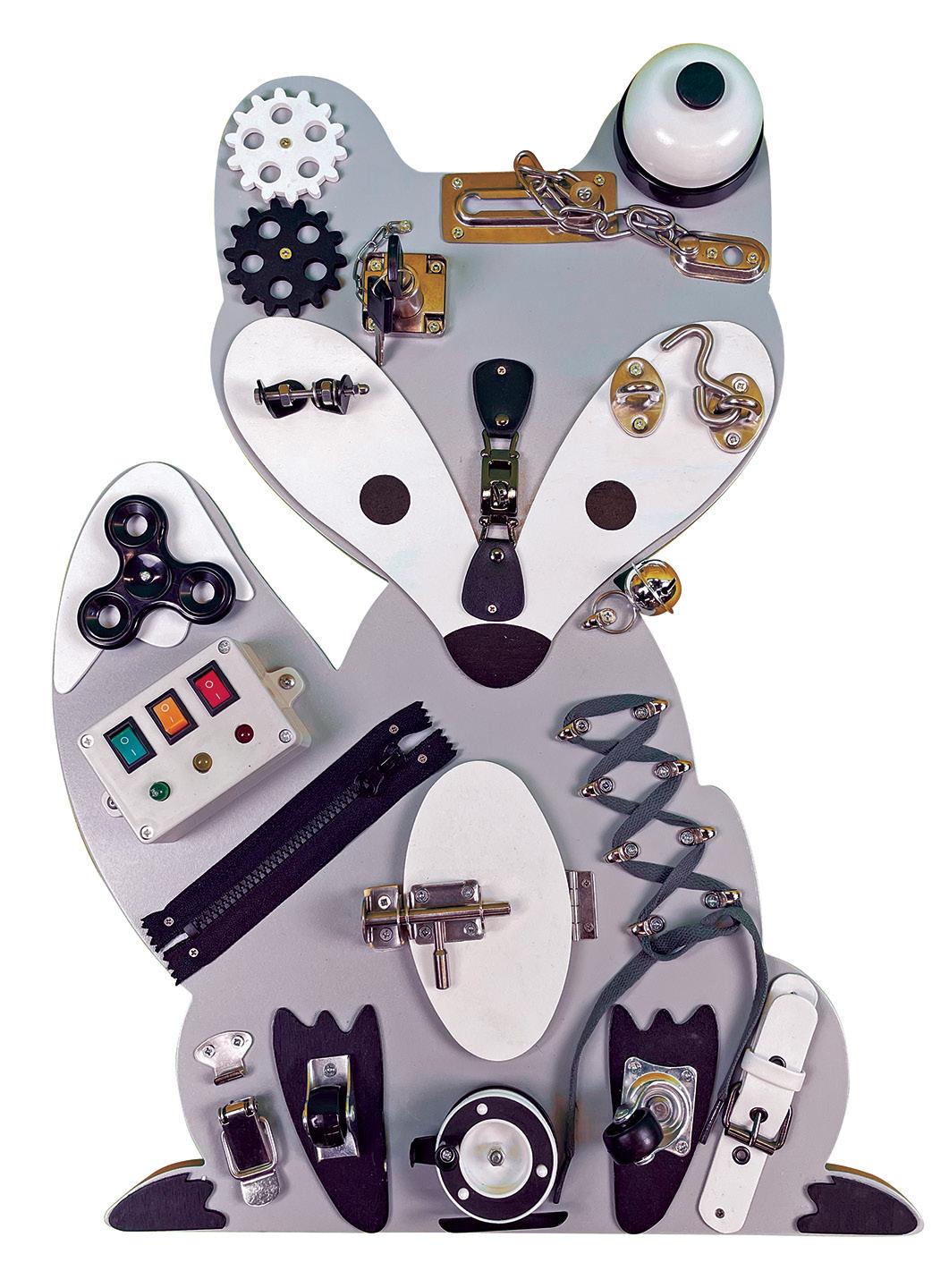
A fun and engaging way for kids to practice their fine motor skills and keep busy. Activities include spinning, rolling and more. Try out the latches, hooks, switches, zippers and shoelaces!
Wolf Paw Chew Necklace
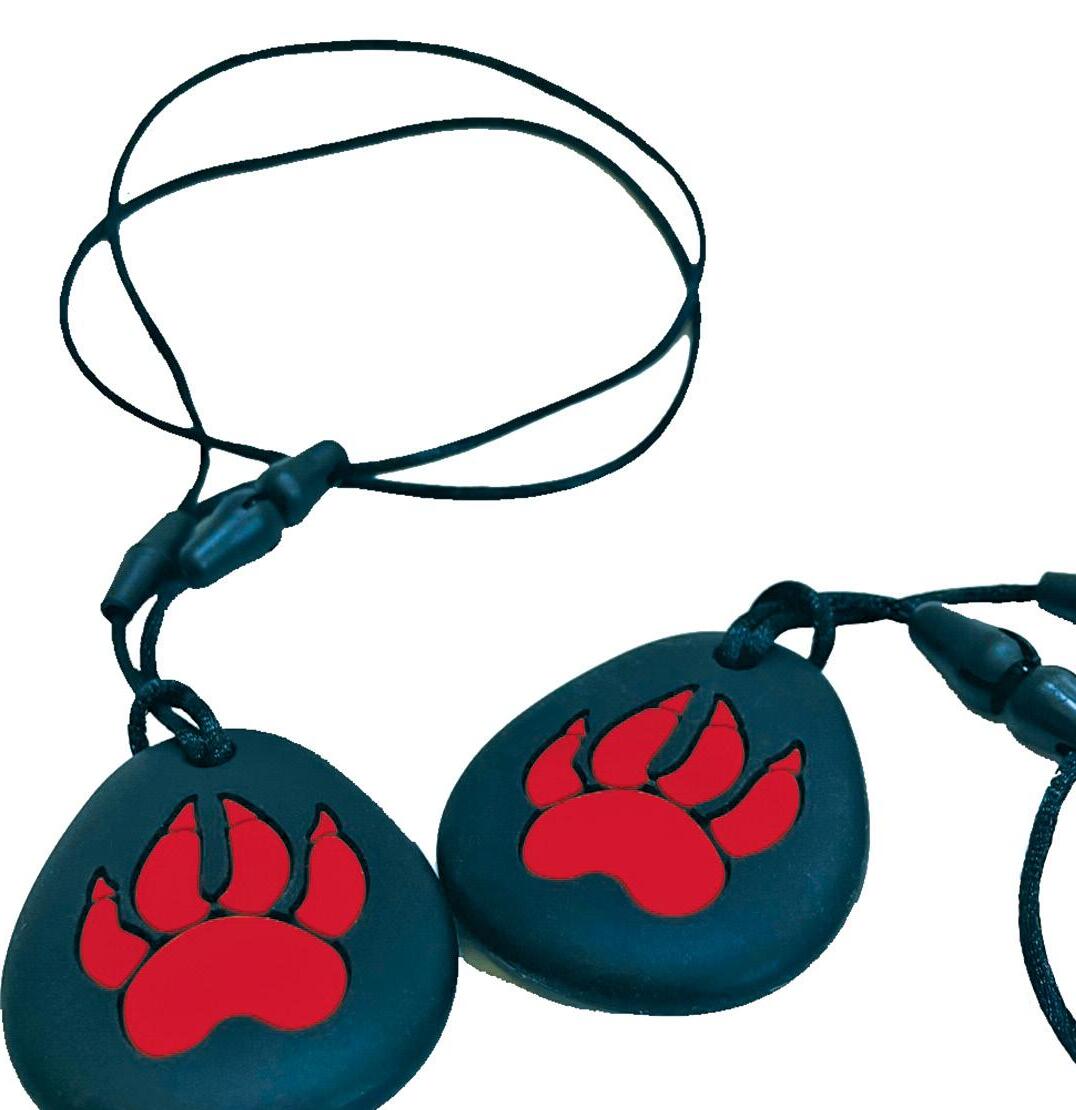
A beautiful pair of durable chew necklaces to help children focus and concentrate. Made from 100% safe material.
Every Child Matters
Weighted Bears
Weighted Bears provide a slight pressure on the body when cuddling, hugging or holding. This gentle pressure can provide relief from anxiety, stress or discomfort.
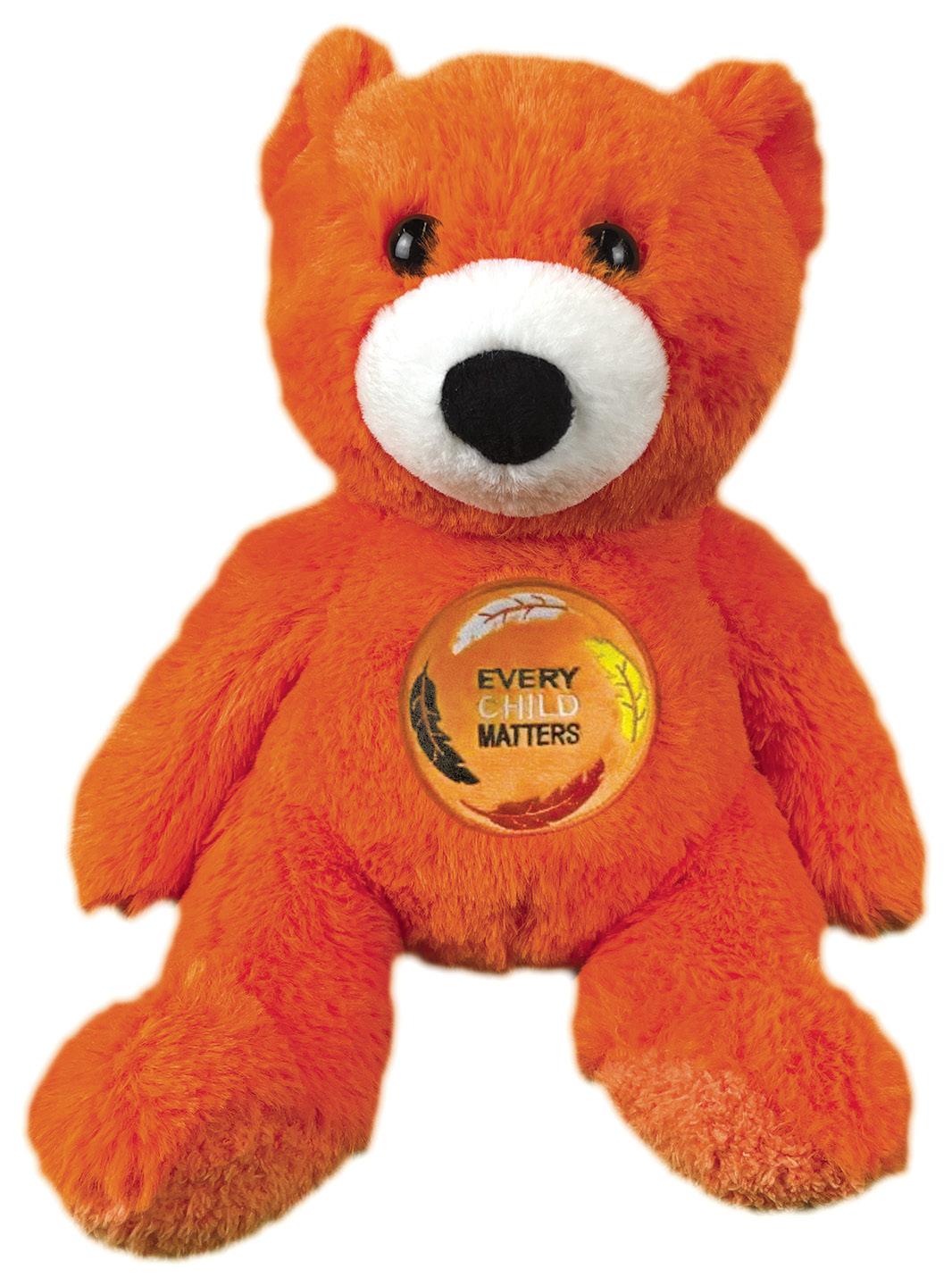
Confessions of a Sports Dad
When I was five or six, my parents took me to our local rink to see if they should get me hockey gear. From behind the Plexiglas, I marveled at the speed and grace of the skaters, the slap of the puck against the boards and bodies. Then I turned to my parents and declared: “A kid could get hurt playing this.”
And that was it for me and organized sports.
Which isn’t to say I didn’t play sports. In Ottawa, there was shinny in the winter and pick-up street hockey, basketball, touch football and softball when the city thawed. But my folks never forced their timid and bespectacled son to join a team. I think I turned out okay.
More than 30 years later, in Victoria, I faced the same dilemma with my own two kids. I knew the mantras of motivation: There is no “I” in “team.” Always give 110 per cent. Sports build character. Yadda yadda yadda. But I’d spent my nerdy high-school years terrorized by the jocks, so I didn’t buy the easy promise of better child-rearing through Darwinian competition. Sports might reveal character—like when the
rugby team tried to give me a wedgie—but so do ballet recitals and videogame tournaments.
Still, even before he grew hair, my son loved to throw and kick and catch every type of ball. His younger sister graduated straight from crawling to running like the wind. Whatever my personal biases, sports would likely one day find my kids.
And so I repeated my parents’ pilgrimage to the local rink. We watched a young player crash into the opposing goalie, then a defenceman spear the fallen forward in the spleen, and finally a wall of parents hammer on the glass and howl at the teenage referee. My kids looked shocked, and we left quietly before they released the lions. Mission accomplished: I evaded years of pre-dawn hockey practices and expensive equipment fees.
Instead, my wife and I put our kids in soccer—a sport that, for youngsters, barely deserves the adjective “organized.” There’s a ball, a scrum of high-kicking little people, and a huddle of parents stroking their iPhones in the rain. An hour or two of running our kids ragged for the price of shin-pads and second-hand cleats. Even here, though, I once saw two

10 WestCoast Families .com PARENTING
fathers nearly come to blows when one five-year-old daughter accused the other of cheating.
Soccer is the gateway drug to becoming a Sports Dad. The next spring, we added baseball to our roster. Our son seemed okay with the idea because most of his friends played, until I told him to grab his gear for the first practice. “Why did you sign me up?” he howled, clutching a book on the sofa and breaking into tears. “I want to stay home and read!”
“Put down that book!” I shouted. “You’re going to baseball!”
I shuddered. What kind of monster had I become? Worse, I’d signed a “Contract of Parental Behaviour” with the clause: “I will not force my child to play.” Oops.
Despite my son’s misgivings, he ended up loving baseball. His coaches taught him the rules and brought out the best in new and experienced players. And the boys and girls looked so darn cute in their uniforms! I volunteered to work the microphone at games as the announcer—because why should a father wait until his kid’s wedding to embarrass him?
And he got good, too. As a teacher, I could see the feedback loop of learning: practice, failure, more practice, success, lose some, win some. He developed dexterity and agility and self-confidence alien to me at his age. The small skills of throwing and catching and swinging and running and not pulling dandelions in the outfield evolved, by the end of the season, into a cooperative effort that looked something like baseball.
Psychologist Mihaly Csikszentmihalyi has studied how “optimal experiences”—often physical activities—can induce in us a state of “flow” in which we surf a harmonious wave that oscillates between challenge and competence, anxiety and boredom. Baseball—a sport with much boredom and anxiety for fans and skeptics alike—was pure flow for my son. The obsessiveness of his then nine-year-old imagination also set aside Star Wars and Minecraft and found new purchase on the lore and science of the game: statistics for favourite players, YouTube tutorials on how to throw a curveball.

Which isn’t to say his experience has been all sunshine and smiles. There might not be an “I” in “team,” but there is often a “cry,” usually after a hard slide or a misplayed ball or a tough loss. That’s difficult to watch as a parent. And yet my
son always bounces back and never wants to miss a game or practice.
By the next summer, the whole clan was hooked. Our son did spring training and regular season, played on a summer select team and a fun fall squad, too. We cheered the HarbourCats and the Blue Jays. I got drafted to coach softball so my then seven-year-old daughter could play, too. My homework included how to grip a ball on its seams and the rules of “What Time is it Mr. Wolf?” I wore a ballcap and a team T-shirt most weekends. One day, I looked in the mirror and realized I’d become an accidental Sports Dad.
Sure, we tried not to care about the outcome of our kids’ games—without much success. Soon our social life began to revolve around local ball diamonds. At home, we watched Ken Burns’ documentary history of the sport, which offered the context and the chance to talk as a family about big issues: sexism, racism, economic inequality and why they no longer serve you a beer when you reach third base.
I already look back on those summers with the nostalgia so common to sports fans. My son moved up to new leagues, where the game is faster and more competitive. A kid could get hurt playing it perhaps. I worry about the stats on how participation in organized team sports drops dramatically as young players enter their teens. I worry, too, about the countless terabytes of cognitive energy we devote as a culture to tracking the Sports Industrial Complex of millionaire ballplayers and puck-chasers.
But then I remember the nights when I come home frazzled from work, and my son and daughter grab their gloves and a ball and wait out on the street for me to send one more text or check one last email.
“Put down your iPhone!” they shout. “You’re going to play baseball!”
And I do.
Fall 2023 11
David Leach is a professor in the Department of Writing at the University of Victoria and author of Chasing Utopia.
Finding Light
Through Postpartum Depression
It’s a gripping sort of nothingness.
I wake up and it hangs over me like a mental fog, disallowing me to connect to my usual pathways—something that I’ve never struggled with until now. Faithful anxiety, absolutely. But this emptiness is new. Losing interest in things I love doing is new, and so is this way of being.
After birthing my final children—two at once—depression has seemingly arrived in a progressive way for reasons unknown, almost three years postpartum. Sometimes it lingers only a few days, but lately it feels more often.
And it hurts to feel nothingness.
Glimmers of happiness come and go quickly as I slip into this staggering, unwarranted despair. The usual joys of the day are still able to peak in and provide comfort—like when they hold my hand or tell me, despite my awful way, that they love me.
And I hold on dearly to these moments and their hands, knowing how it should feel, and how it has always felt.
But I am lost in the tired darkness of postpartum womanhood.
These fluctuating, cyclical hormones and this debilitating irritability—it all makes me feel completely incompetent at being the parent I want to be. A mental lethargy so unwavering in the stress load that I don’t recognize my existence at all.
I do try and hold space for compassion and grace, knowing that this is something beyond my control right now, but I also feel it’s something to speak up for. Something to share knowing others must feel it too, no matter how long after giving birth. Something to advocate relief from, knowing there must be answers out there.
This is not me forever. And hopefully not for long.
The role of mother is one that so many of us play, and yet we don’t often express to one another the true battle that we experience behind closed doors.
To be a mother is the most contracting journey I’ve ever known. It’s as astonishingly beautiful as it is isolating and depleting.
It has made me a better person and also tested me to my absolute limits over and over again, and so I’ve chosen to share moments of my experience with intention.
I find comfort in connecting with others throughout it all, and in knowing how similar we are.
Even when the same day seems to play on repeat, or when we feel like giving up before lunch time, we are not alone in it—though it sure does feel like it sometimes.
We can get through the most challenging days when we feel supported, and sometimes
that’s possible from a distance, when our struggles are recognized in others, too.
We were blessed to be appointed this magical responsibility, but we often lose sight of that because society sets us up to question our ability to be the perfectly-imperfect mothers that we are.
I know we were intended to evolve stronger through this impossible time—together.
Through inevitable hardships we can find growth and resilience.
Through necessary mistakes we learn.
Through the beautiful sacrifice of being “Mom,” we can know an unparalleled fulfillment.
When we shamelessly share both our success stories and messy truths, we’re able to change the narrative of impossible expectations placed upon us.

12 WestCoast Families .com HEALTH
PLATYPUS THEATRE: CHARLOTTE AND THE MUSIC-MAKER
November 26, 2023
David Bui Conductor
Platypus Theatre Entertainers
The Music-Maker is an odd little man who takes Charlotte on a magicalmusical journey through the orchestra, exploring the sounds and colours of the instruments, and the exciting possibilities that music has to offer.
CLASSICAL KIDS LIVE!: SAINT-GEORGES'

April 14, 2024
David Bui Conductor
SWORD & BOW
STAR WARS FOR KIDS
February 4, 2024
Sean O'Loughlin Conductor
Travel to a galaxy far far away with the VSO! Introduce kids to the legendary music of John Williams, and other intergalactic composers, and experience firsthand how music can make young minds soar. It’s sure to be a stellar afternoon for all!
WHAT DO YOU PLAY?
May 5, 2024
Vern Griffiths Conductor / Host
AL SIMMONS SOMETHING’S FISHYWITH THE VSO








September 24, 2023
David Bui Conductor
Al Simmons Entertainer
Yes, Something's Fishy and it's Swimmins....make that Al Simmons: tour-de-force of ingenious and silliness. For 53 years, his astounding gadgets and preposterous songs turned audiences around the world shaking masses of giggles.
highs and challenging lows. @mommamillsblog
Classical Kids Live! Entertainers
Superb swordsman! Violin virtuoso! Coruscating kaleidoscopic composer! The one and only Joseph Bologne, Chevalier de Saint-Georges! A new
Some people play soccer, others play video games. For many of us, what we love to play is our musical instruments!
Known for his fun and engaging kids concerts, conductor and host Vern Griffiths will lead us on an exploration of different
Fall 2023 13
What do YOU play? you to dream big. BROADCAST MEDIA PARTNERS Buy Now at VancouverSymphony.ca or 604.876.3434 Buy Now at VancouverSymphony.ca or 604.876.3434 Buy Now at VancouverSymphony.ca or 604.876.3434 Buy Now at VancouverSymphony.ca or 604.876.3434 at VancouverSymphony.ca or 604.876.3434
CHARLOTTE AND THE MUSIC MAKER
VERN GRIFFITHS
You Matter
32 ways to put yourself back on the priority list

You deserve as much time, effort and energy as you give to other people. Oof, as basic as that is, that can be hard to remember sometimes! So how do you actually put yourself back on the list? Here are some simple ways to get started. You can try some, all, or just use this as a starting point to create your own personalized list.
Read for 15 minutes before bed
• Say yes to the next invite you get
Call up the friend who you’ve been out of touch with
• Pick a movie, a snack, a beverage and a cozy sweater and block off an hour
• Give yourself 20 extra minutes to get ready and do whatever self-care routine calls
• Make a playlist of old favourites
• Go grocery shopping and add two things to the cart that are just for you
• Put your phone on airplane mode and flip through a magazine without distractions
• Invest in a favourite tea, juice or coffee and have it every single day
• Clean an area of your home where you love to spend time
• Tell your partner you need a night off and take yourself on a date or meet a friend
Buy yourself something you always wanted but haven’t allowed
Make a smoothie of fresh fruits and vegetables to energize your body
• Get a sun-lounger so that being outside feels like a vacay
• Make a travel bucket list ranging from local travel to dream destinations
• Pick a special dinner and either learn how to cook it or order it for yourself
• Say yes the next time someone offers to walk the dog, watch the kids or send over food
14 WestCoast Families .com HEALTH
Get rid of five things in your wardrobe that you hate and replace them
Plan a mini vacation (even if it’s just an overnight) and commit to it
• Get yourself fresh cut flowers or a new plant to cheer up a space you love
• Get chores done extra early on a Saturday and make time to actually enjoy your space
• Lie in the sun and leave your phone inside




• Next time you want to say no, actually say it
• Get a journal and commit to writing out the three best and worst parts of the day for a week. Notice any changes you need to make?
• Go for a walk in nature
• Have a social media-free weekend
• Sign up for the course/group that you’ve been putting off
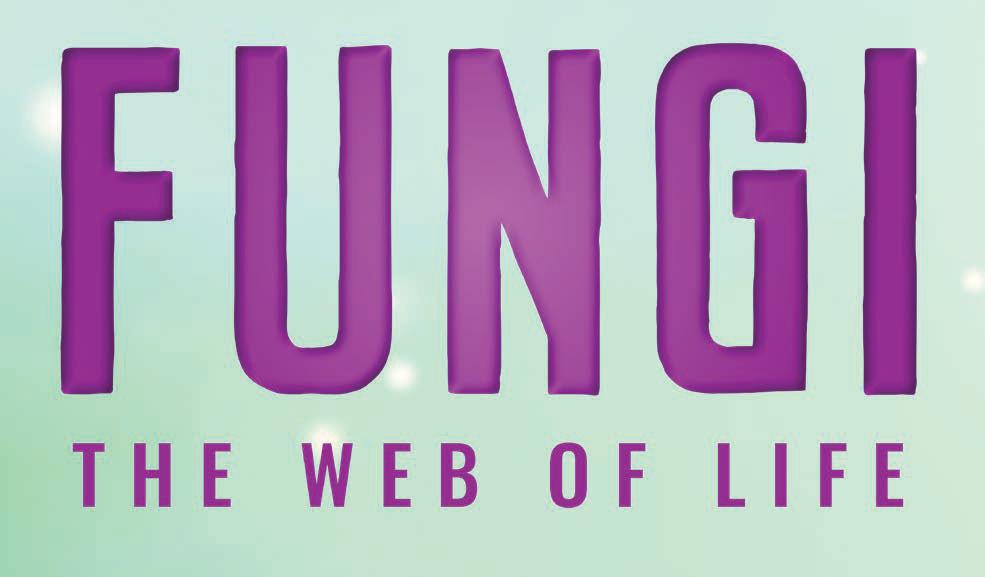
• Get reacquainted with whatever physical movement you used to love
• Play tourist in your own city/town with the kids but don’t do kids-only activities
Have a good laugh, watch your favourite stand-up comedian
Spend time in the garden, backyard or balcony


• Buy an adult colouring book and beautiful felt pens and don’t share them!
Hopefully these simple ideas will get the ball rolling! At least be willing to try. Not everything will feel like a slam dunk, and that’s okay! Just keep trying, because learning how to care for yourself, too, is one of the most important things you can do for your mental health and fulfillment in parenthood. You got this.
Kate Borsato is a mental health counsellor on Vancouver Island. With her online counselling practice, she supports women during their transitions into motherhood and postpartum stages. Learn more at kateborsato.com
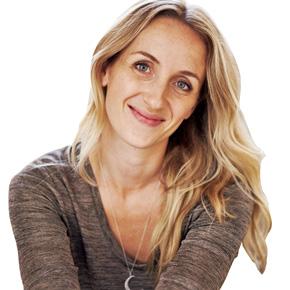
Fall 2023 15
A GIANT SCREEN 3D EXPERIENCE OPENS OCT 20, 2023 SEE FULL SCHEDULE AND GET TICKETS
All Kids Might Not Do That, Actually







“All kids do that!”
A benign phrase, meant to imply shared experience and empathy, to support and diffuse worry. It often comes with a reassuring pat on the shoulder, and always emanates from a place of good intentions. Yet, despite having heard it hundreds of times, it sends a pang through me every time. “All kids do that” is in fact one of the least supportive comments you can make to the parent of a child with special needs. Here’s why. It can stop a person from seeking help.
Early on in our journey, I would fret about my kid’s difficulty communicating, challenging behaviour or fixation on some seemingly bizarre object or routine. When people said, “Don’t worry! All kids do that!” I would be suddenly self-conscious about my anxiety, and quite frankly, question my parenting skills. If all kids do this, why the heck can’t I deal with it? Furthermore, if all kids do this, I guess seeking professional help is silly and overbearing? I can say with confidence that our son’s autism diagnosis would have come sooner if I hadn’t believed the amount of people who chalked his behaviour up to the “terrible twos” or simply being a boy. (Looking back: huh?) Disclaimer to worried parents: if all kids DID actually do that, chances are you wouldn’t be stressing so much. So go ask for help.
Your kid might do that now, but he probably won’t be doing it in another 10 years. We all have shared parenting struggles. Potty training. Tantrums. Aggression toward siblings. Learning to walk. Inattention. Picky eating. Sleepless nights. Separation anxiety. For your typical kid, these are relatively short phases. For children with physical disabilities, developmental delays or mental health issues, however, these struggles can last a lifetime.

It brushes off a serious situation. Many parents of kids with special needs avoid unloading on their friends who parent typical children. When we trust someone enough to share the struggles we’re going through, we need someone to take














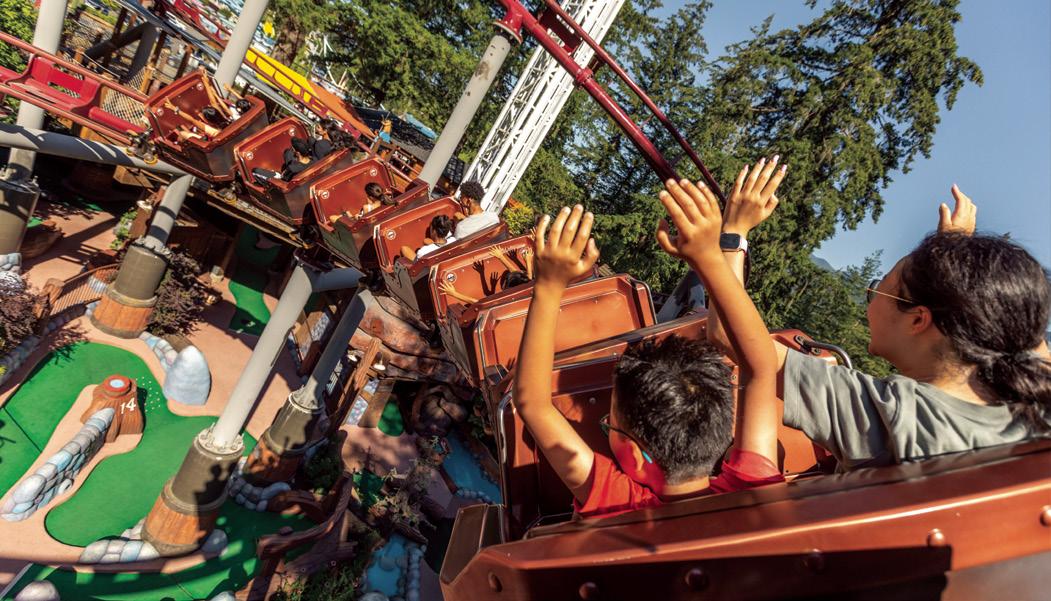


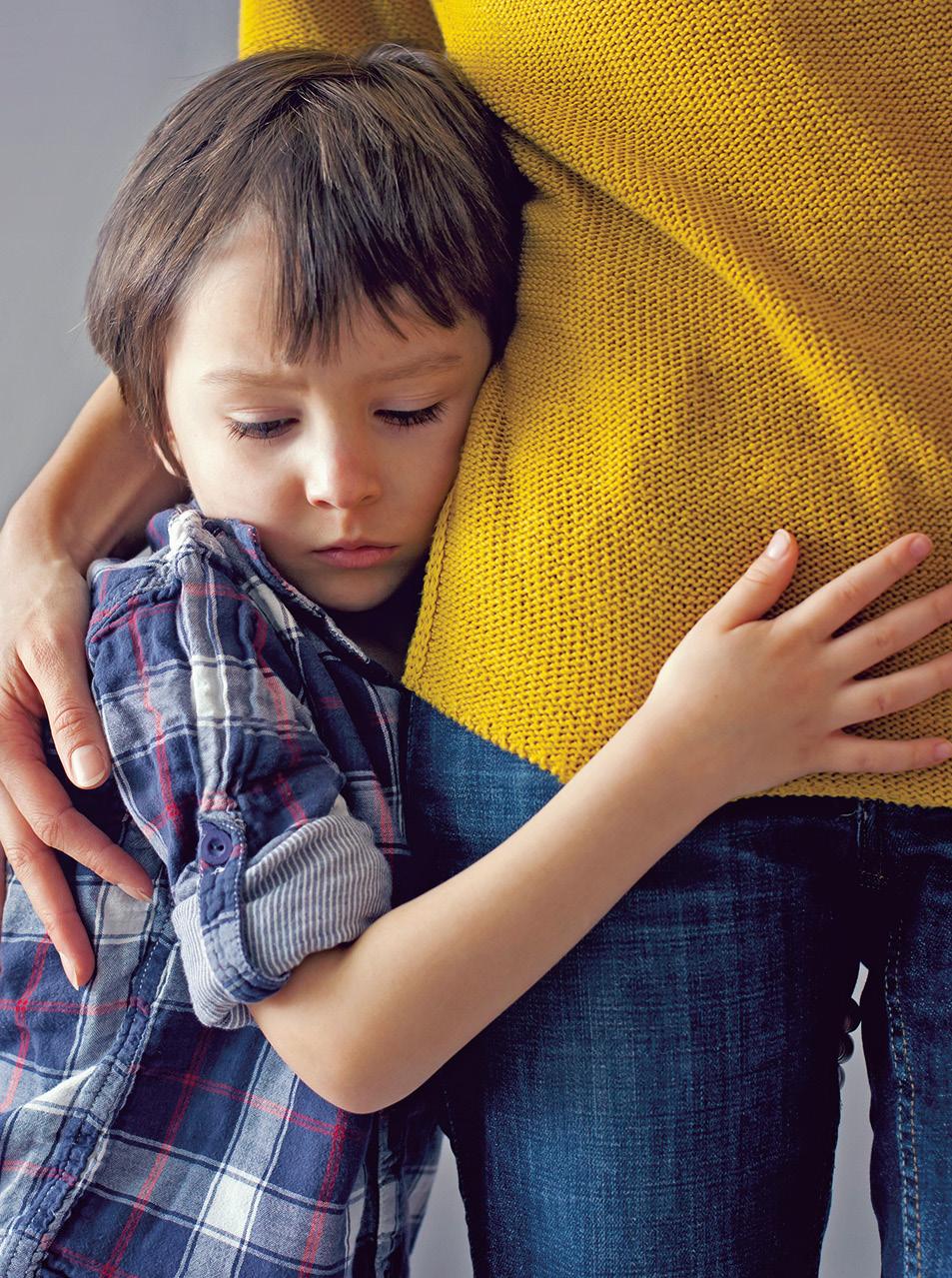
SPECIAL
NEEDS
BUSINESSES YOU NEED TO KNOW 16 WestCoast Families .com When You Have Enough Life Insurance & Disability Insurance… Desmond Wellesley, LLQP, GBA Principal & Consultant 778-997-6415 desmond@wellesleyinsuranceagency.com You Will Sleep Like a Baby.
the time to listen and understand, not disregard a unique experience by laying claim to something they can’t possible comprehend. Hearing “all kids do that!” not only undermines our experience but serves as a reminder that our kids are in fact not like all kids.
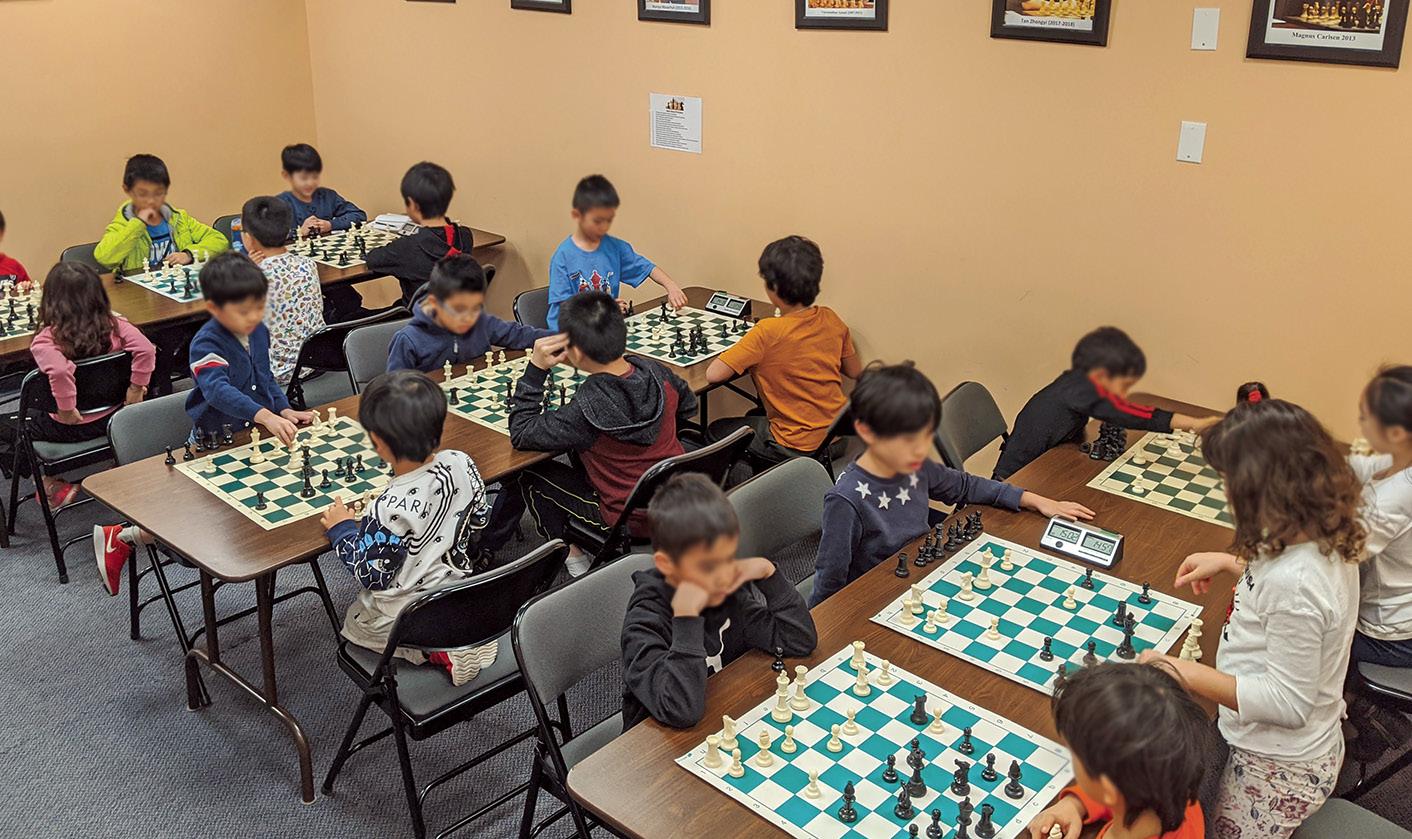

It’s a matter of degree. For sure all kids do some of the things our kids do, to some extent. All kids have tantrums, but they don’t all have meltdowns that have a dramatic impact on the entire family. All kids have sleep issues, but they aren’t up at 2:00 a.m. for the day. All kids can be shy, but they aren’t completely unable to find ways to interact with peers. All kids have trouble finding their words sometimes, but they aren’t non-verbal. These nuances matter.
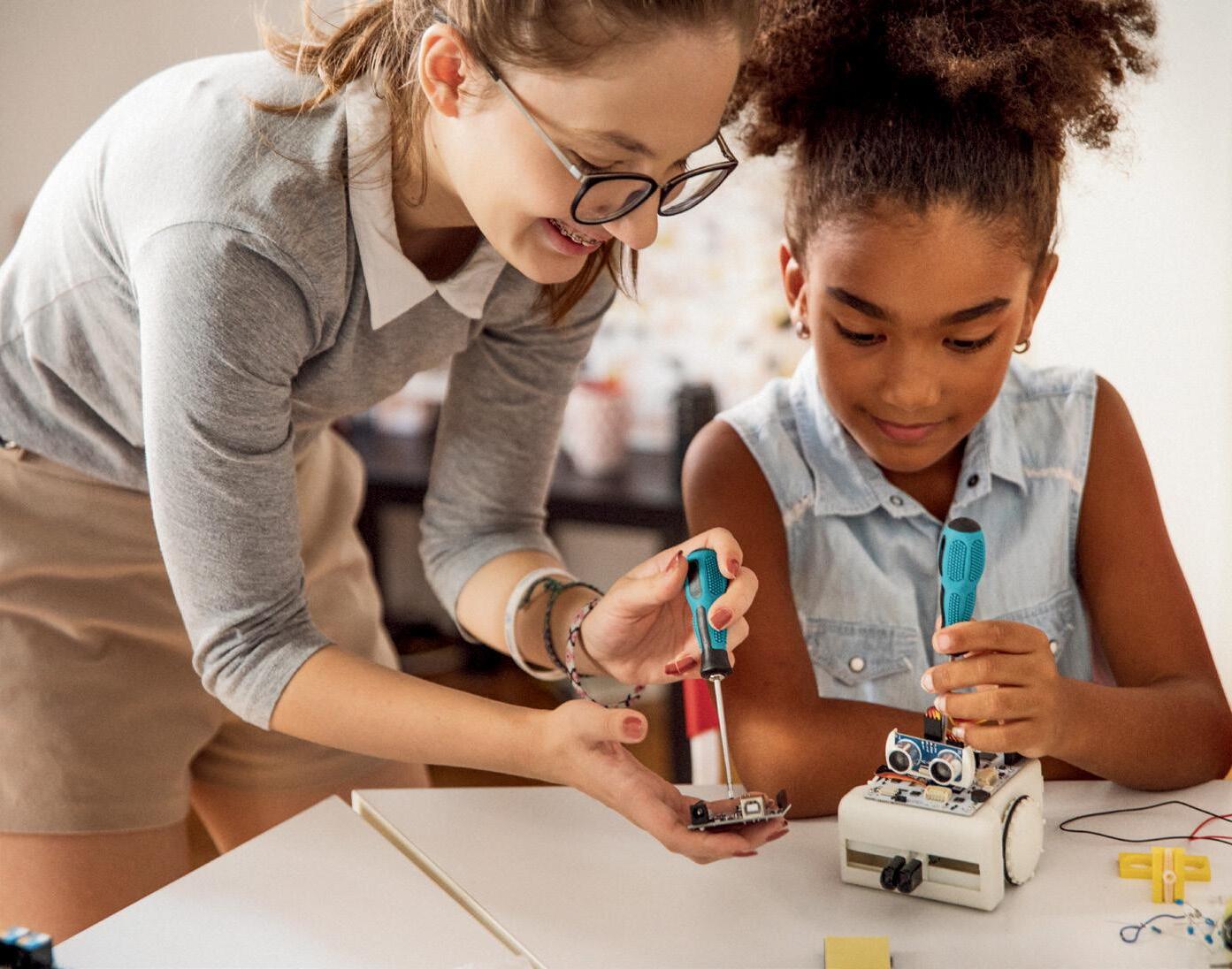
Your kid repeats phrases from some annoying cartoon? I have a friend whose son’s main mode of communication is to echo phrases from Thomas the Tank Engine. This has been going on for years. We parents of kids with special needs don’t want to be competitive or anything, but seriously. Let us have this one.

I don’t want parents to come away from reading this feeling like they can’t say anything lest they offend. So I asked an online community of fellow parents of kids with special needs. They agreed wholeheartedly that “all kids do that” is just a heck of an unhelpful comment. What would they rather people say instead? I asked. So, here are their responses.

“Wow, that sounds hard. How can I help?”
“If you’re worried you should talk to someone.”
And finally, rounding out the top three, “Would you like a glass of wine?”
Well, I guess we’re not all so different after all.


Carly Sutherland parents two boys, one of whom has autism. She enjoys a heartier Cabernet.

Fall 2023 17
HANDS-ON ATSTEMHOME! REGISTER TODAY www.GirlsInScience.ca Canada's largest STEM Club for girls and gender-diverse youth ages 7 - 17. K Comprehensive 12-level chess program R Online and in-person programs B Weekly tournaments N Top coaches Test your chess level for free here: vanchess.ca/programs Vancouver Chess School vanchess.ca 604-568-3283 312–2083 Alma St Vancouver V6R 4N6 info@vanchess.ca Better chess moves, better life moves
20 Ways to ‘Winterize’ Your Family
The Danish have got it down pat—all you need to survive winter are the five elements of Hygge: warmth, togetherness, simplicity, comfort food and nature. But don’t stop there. Add one or all of the following to your family’s fall to-do list and you’ll find the darkening winter days all that much brighter! Create a cozy atmosphere. Make your home a warm and inviting space by adding cozy touches. Use soft blankets, warm lighting and scented candles to create a warm and comfortable ambiance. Read books together, play board games or watch movies in your winter cocoon.
Embrace seasonal activities. Take advantage of winter-specific activities. Depending upon where you live and what’s close at hand, consider ice skating, sledding, skiing or even puddle jumping! Not only do these pursuits provide exercise but they also create lasting memories.
Set goals and plan projects. Why wait for New Year’s Eve?! Use the winter as an opportunity for personal and family growth. Set individual and collective goals or embark on projects that align with your family’s interests. Learn a new skill, plan a trip or work on a hobby together.
Stay physically active. Encourage your family to engage in physical activities regularly, even during the colder months. Indoor activities like dancing, yoga or home workouts can be fun and keep everyone fit.
Eat nutritious food. Eat a well-balanced diet rich in fruits, vegetables, whole grains and lean proteins. Seasonal produce can be a great addition to your winter meals. Experiment with cooking hearty and healthy winter recipes. And cook together—not only is this a way of teaching healthy eating habits, but it’s fun, too!
Stay hydrated. It’s easy to forget to drink enough water in colder weather but staying
hydrated is just as important now as it is in summer. Herbal teas or hot water with lemon are options as is an occasional mug of hot chocolate!
Get enough sleep. Keep a consistent sleep schedule for everyone in the family. A good night’s sleep is as important to kids as a winter’s hibernation is to bears! Head to bed a little early and snuggle up to read.
Practice good hygiene. Encourage regular handwashing and personal hygiene to prevent the spread of illness, especially during flu and cold season.

Bundle up. Dress appropriately for the weather. Layers can help regulate body temperature, and don’t forget to wear hats, gloves and scarves to protect against the cold.
Get enough Vitamin D. Since there’s less sunlight in the winter, think about talking to your doctor about taking vitamin D supplements. This can help with mood and overall health.
18 WestCoast Families .com PARENTING
O PE N 6 D AYS A W EEK F RE E PAT I E N T PARK IN G EMERGENCY PATIENTS & NEW PATIENTS ALWAYS WELCOME Aar m Dentists we accept most major dental insurance plans and we do not charge above BCDA Fee Guide Prices Aarm 10 Vancouver Locations to serve all your dental concerns.. Aarm at BC Place 919 Expo Blvd. 604-689-0965 Aarm on Beach 112-1000 Beach Ave. 604-683-5530 Aarm on Beatty 529 Beatty Street 604-699-1901 Aarm on Cambie 2180 Cambie St. 604-684-0224 Aarm at Coal Harbour 1560 Coal Harbour Quay 604-688-2354 Aarm on Denman 917 Denman St. 604-647-0006 Aarm on Hornby 1270 Hornby St. 604-681-8530 Aarm on Main 2270 Main Street 604-255-0060 Aarm on Seymour 993 Seymour St. 604-688-7607 Aarm in Yaletown 1156 Pacific Blvd. 604-629-0386 A arm Dental Gr oup We’ r e in your neighbo r hoo d to m a ke you smile.. . www.aarm-dental.com WINNER 2023 FAMI L Y • F A V RUO I SET •
Take care of your mental health. Seasonal affective disorder (SAD) is a real thing and can have a huge impact on mental health. Consider light therapy lamps and encourage kids to talk about and express their feelings and emotions.
Plan fun indoor activities. To help combat boredom and cabin fever, make a list of your family’s favourite indoor activities and games that you can enjoy together.
Stay connected. Keep connections with friends and family, even if it’s through video calls. Social interaction is essential for mental well-being. Host a potluck or a movie night.
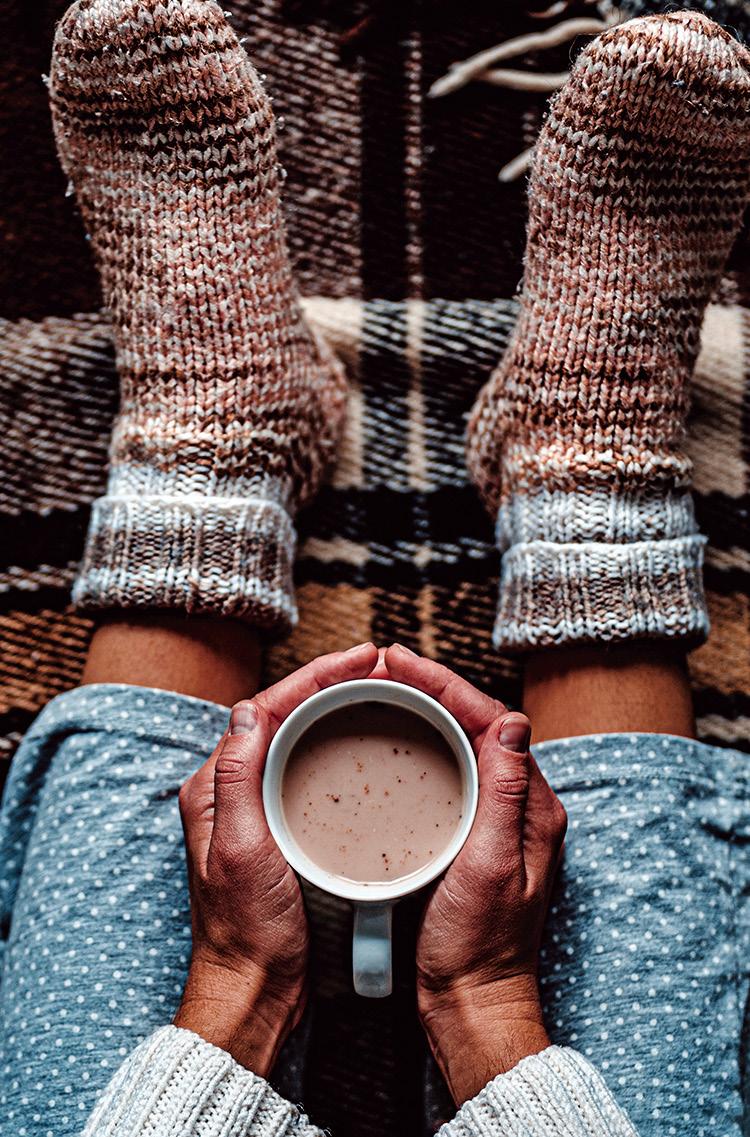
Keep active minds. Have reading, puzzles and educational activities on hand to keep everyone’s minds busy during the winter.
Remember safety. Have an emergency kit, including blankets, flashlights and nonperishable food, in case of power outages or extreme conditions.
Practice gratitude. Encourage a sense of gratitude by sharing things you’re grateful for each day. At dinner time or before bed, have kids list three things that happened in the day that made them feel grateful.
Volunteer. Giving back to the community through volunteering can be a fulfilling way to spend the winter and teach children the value of helping others.



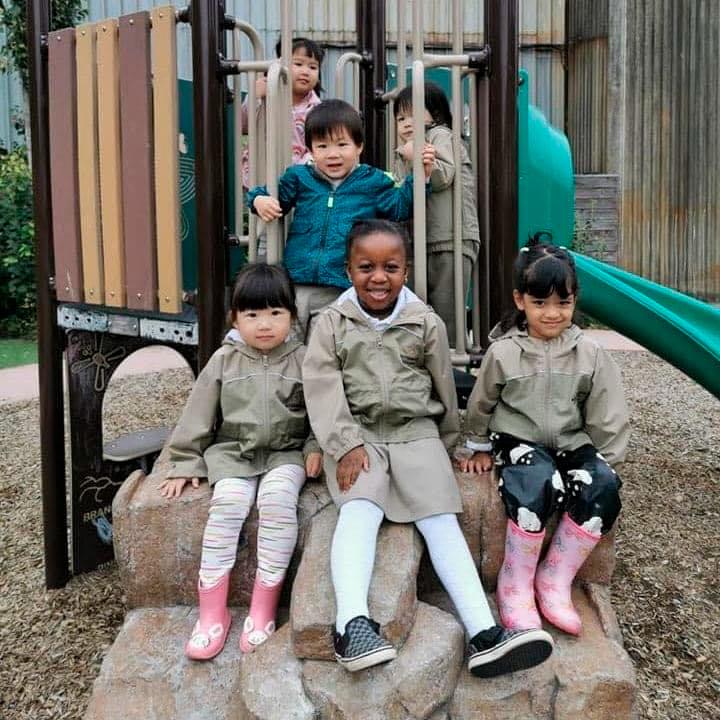
Plan for holidays. If you celebrate holidays during the winter, start planning early to reduce stress. Consider simplified and meaningful celebrations. And make gifts or exchange experiences instead of buying more stuff.

Fall 2023 19
WINNER 2023 FAMI L Y • F A V RUO I SET •
Sleep Habits to Fall Back On A



djusting to the time change, when we ”fall back” and set our clocks back by one hour on November 5, can be challenging for kids—and adults! Here are some tips to help kids transition to the new time without losing any sleep!
Try Gradual Changes
Start adjusting your kids’ bedtime and wake-up time a few days before the time change by moving it 15 minutes earlier each night/ morning until you’re on the new schedule.
Stick to a Regular Schedule


Consistency is key to helping kids adjust. Keep their daily routines, including mealtimes, naps and playtime, on a regular schedule.
Let There Be (Natural) Light


Encourage exposure to natural light during the day, especially in the morning. Natural light helps regulate the body’s internal clock and can aid in adjusting to the new time.

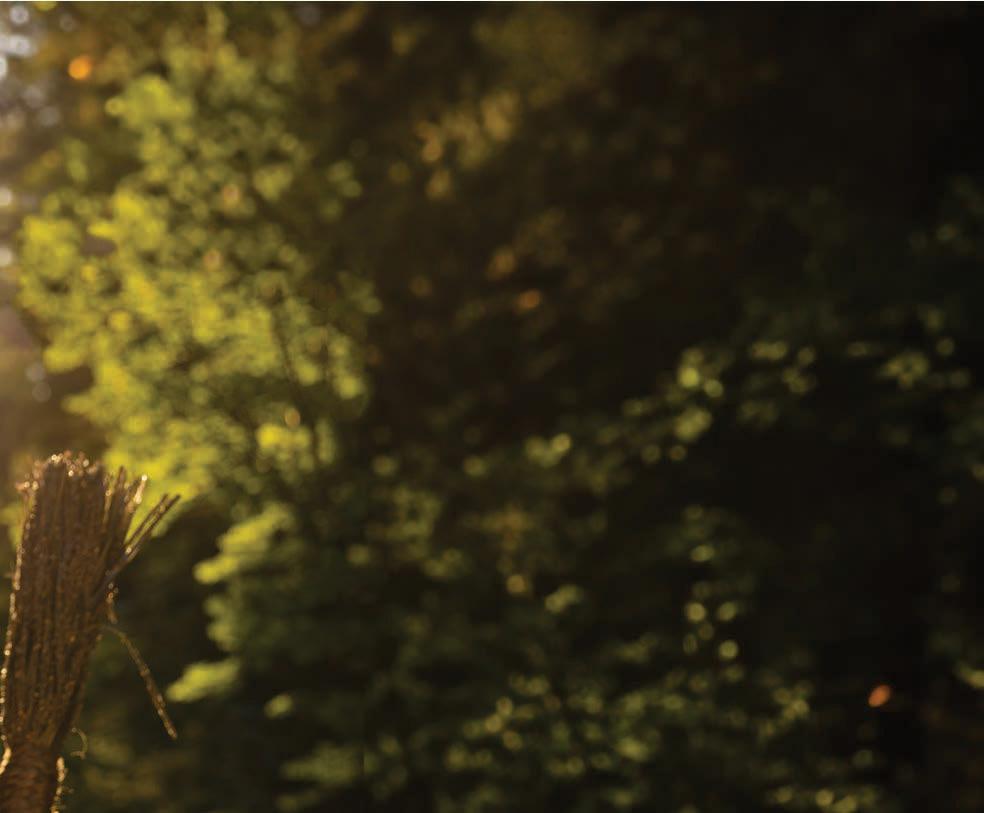

October 13 - 31, 2023 capbridge.com




20 WestCoast Families .com PARENTING
NOMINEE 2023 FAMI L Y • F A V RUO I SET •
Limit Screen Time Before Bed


The blue light from screens can wreak havoc on sleep. Avoid screens at least an hour before bedtime to help your child wind down.
Create a Relaxing Bedtime Routine

Establish a calming bedtime routine that signals it’s time to sleep. This might include reading a book, taking a warm bath or practicing relaxation techniques.



Adjust the Bedroom Environment


Ensure that your child’s bedroom is conducive to sleep. This means a comfortable mattress, cool room temperature and minimal noise and light.
Be Patient
Adjusting to the new schedule may take time. Some kids are night owls, while others are early birds. Be patient and understanding of your child’s natural sleep preferences, and work with them to find a schedule that works.
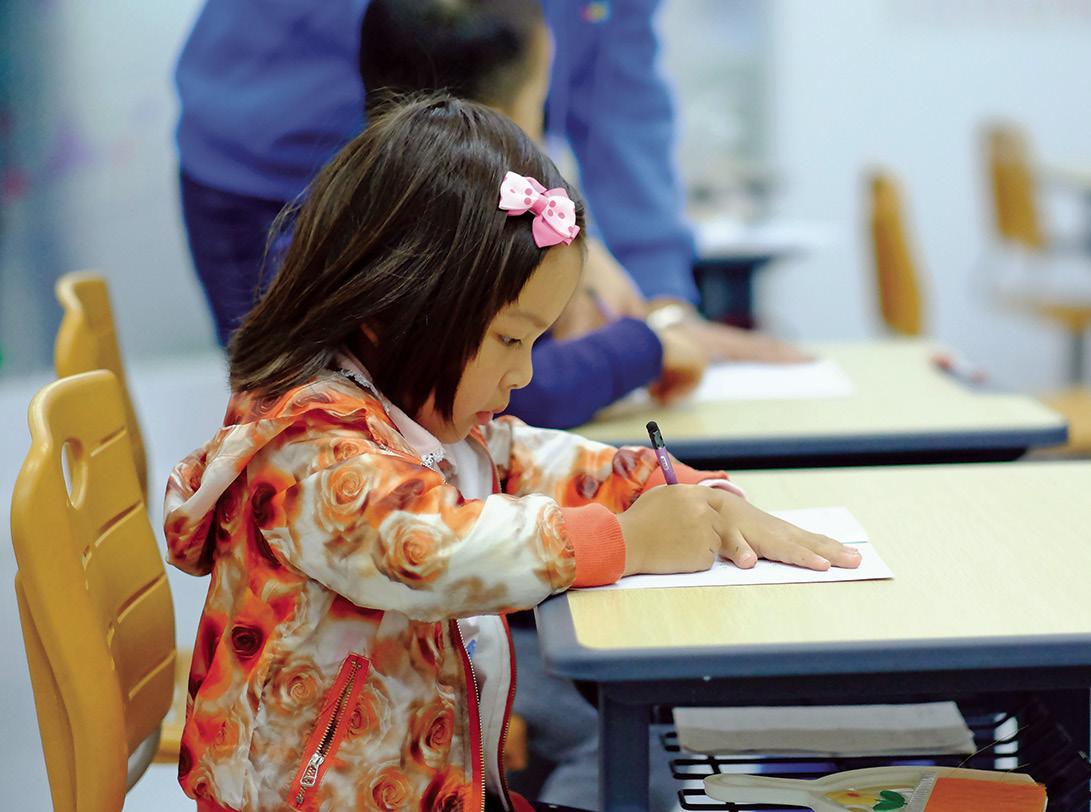

Avoid Oversleeping
On the day of the time change, try to wake your child up at their usual wake-up time. Teach your child how to use an alarm clock or set one for them. Choose an alarm clock with a calm and gentle alarm sound. If all else fails, give your child something to look forward to in the morning, such as a favourite breakfast, morning playtime or a special morning activity.
Fall 2023 21
With 15 locations across British Columbia. Visit our website to find the location nearest you! NOMINEE 2023 FAMI L Y • F A V RUO I SET • Watch for our special Education Issue coming soon
Nurturing Young Families
Being a young family can be an exhilarating journey, filled with love, joy and milestones. However, it can also be an isolating experience, especially when you consider the demanding nature of parenting today, the pressure on caregivers and the well-being of the children involved. In this age of information overload and digital isolation, young families often grapple with a lack of access to resources and a sense of overwhelming solitude. This is where the importance of nurturing young families through support, socialization and resources becomes evident.
Imagine a space where young parents, caregivers and children can gather in a welcoming, relaxed and safe environment—a haven where they can unwind, share experiences and receive the support they need without judgement. Such spaces play a pivotal role in bridging the isolation gap that often accompanies the early years of parenting.
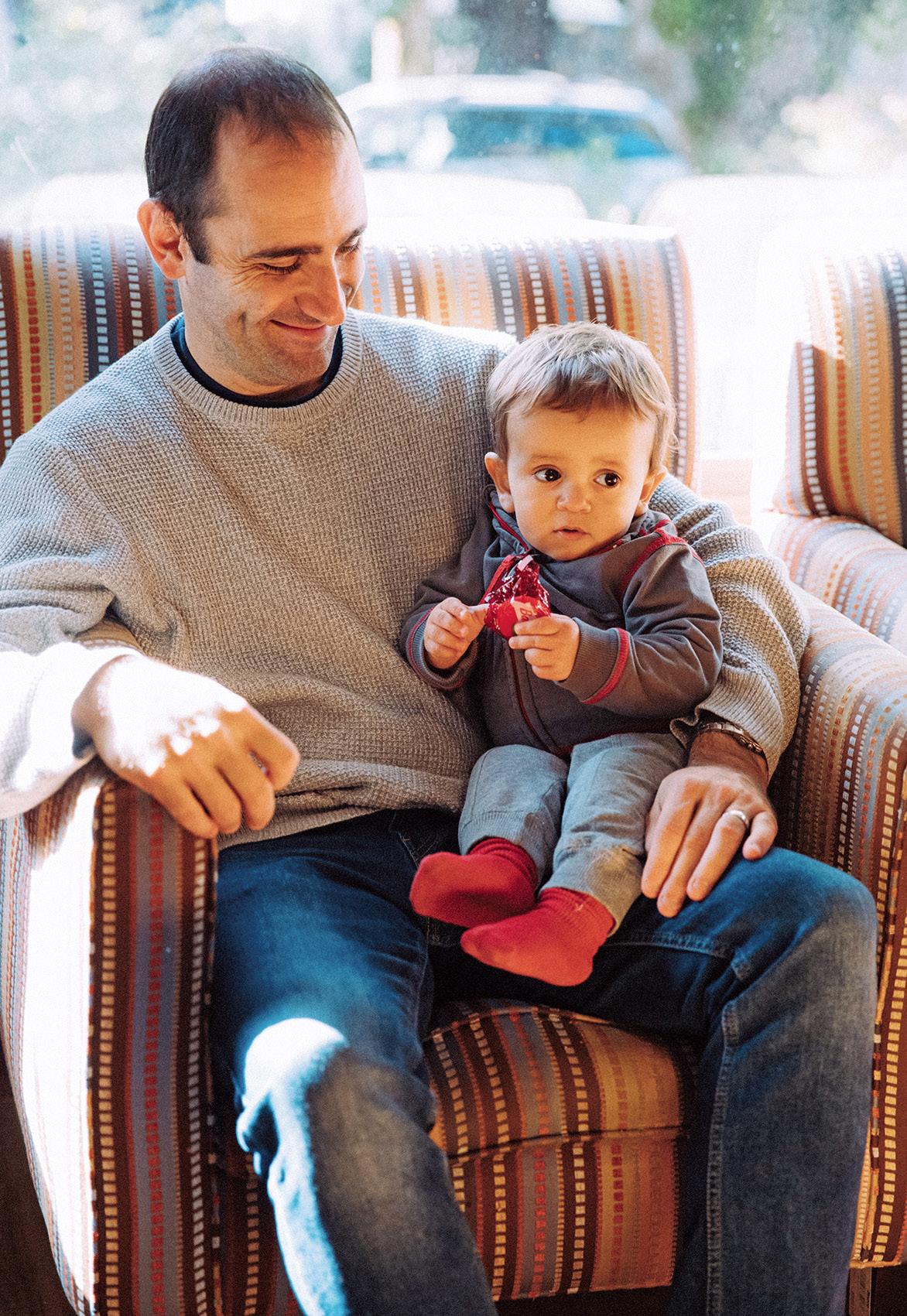

Remarkably, this concept has been in existence for half a century, originating in British Columbia through Family Places and spreading across Canada. Back in 1973, two local mothers came together with the goal of building community connection and support for the well-being of local families. At beginning of the women’s movement, there was a growing awareness of how hard it was to be a stayat-home parent and the toll it was having on families. These centres have since evolved
into vital hubs that cater to the holistic needs of young families, encompassing parents and caregivers, as well as the children.
The significance of these centres cannot be overstated. They offer young families an essential respite from the isolation that can creep into their lives. These centres provide a platform for parents, caregivers, grandparents and nannies to connect with others who understand the unique challenges and joys of raising children. Within these supportive environments, individuals from every background come together, forming bonds, often lasting bonds, that transcend the isolation of early parenthood.
Beyond fostering social connections, these centres serve as invaluable sources of information and resources. Navigating the vast sea of parenting advice on the internet can be overwhelming. These centres offer a reliable, personal touch, where parents can access expert guidance and local resources that cater to the specific needs of their family.
The benefits extend to the wider community as well. By nurturing young families, family resource centres contribute to the overall well-being of the community. They create a sense of belonging and provide young families with the tools and support they need to thrive. In turn, this strengthens the social fabric of the community, fostering stronger, healthier relationships among neighbours.
Moreover, these family-centric spaces play a pivotal role in preparing children for kindergarten. Socializing in a structured yet relaxed environment equips children with essential social skills and emotional resilience, helping them make a smoother transition into the education system. The benefits are not only immediate but also have a lasting impact on a child’s overall development.
As we celebrate National Family Week during the first week of October, the theme of “Healthy Together” takes on even greater significance. In my experience, I have seen that when services are not limited to children alone and they encompass the entire family unit, it promotes physical and mental health. These types of services recognize the interconnectedness of their well-being for greater benefits.
Furthermore, in these supportive havens, many people discover more than just guidance and resources; they find their community. In their raw emotional states, as they navigate the ups and downs of parenting, individuals forge connections that run deep. These early interactions become the building blocks of lasting friendships and support networks. The bonds formed within the cosy confines of family resource centres often extend beyond the centre’s walls, transforming into lifelong relationships.
Know that you are not alone with a family resource centre nearby.
PARENTING
Brenda Lohrenz is the Executive Director at Eastside Family Place.

Fall 2023 23
The Family Favourite results are in! Who has the best products, services and experiences? We asked and you answered. Developed to recognize quality family retailers and service providers in our community. Our readers were invited to vote online at westcoastfamilies.com for their family favorites in 29 categories. The response was phenomenal. Thank you to everyone who voted and sent us such wonderful feedback. We have tallied your votes—here are your 2023 WestCoast Families Family Favourites!
Family Favourites Favourite Outing
LIVE SPORTING EVENT
Winner: Vancouver Canucks
Runners Up: Vancouver Giants, Vancouver Canadians
CAMPGROUND
Winner: Harrison Hot Springs
Runners Up: Manning Park, Cultus Lake
ATTRACTION
Winner: Vancouver Aquarium
Runners Up: Cultus Lake, Wildplay
FAMILY GETAWAY
Winner: Manning Park
Runners Up: Harrison Hot Springs, Whistler
Favourite Retail Store
CHILDREN’S CLOTHING
Winner: Beansprouts
Runner Up: Pink n Blue Kids
BABY
Winner: TJ’s
Runners Up: Steveston Maternity, West Coast Kids
TOYS
Winner: Mastermind Toys
Runners Up: Toys “R” Us, Granville Island Kids Market
CONSIGNMENT
Winner: Dragon & Phoenix
Runners Up: Mine & Yours, Shameless Resale
GROCERY
Winner: Thrifty Foods
Runners Up: Famous Foods, Choices Markets
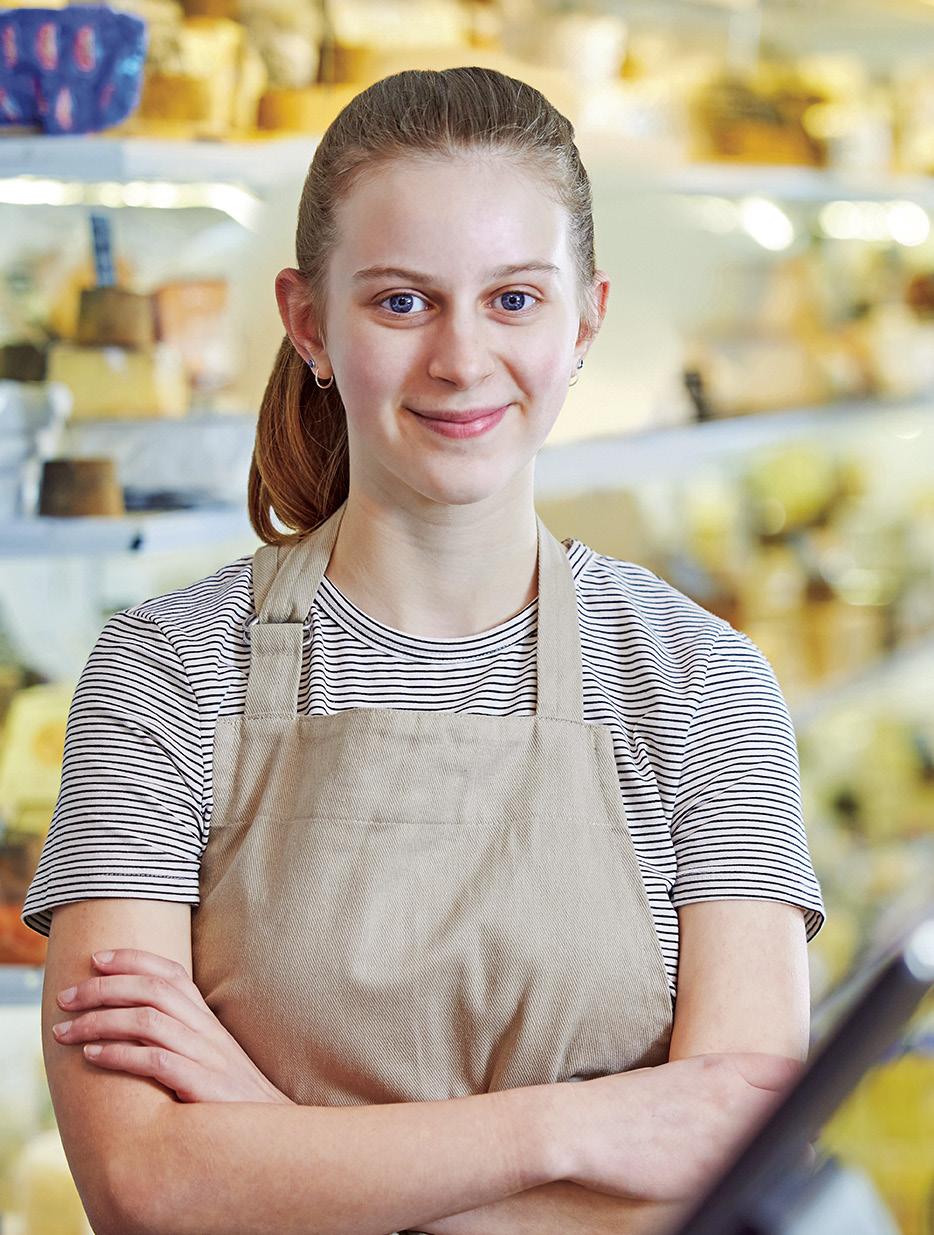
BOOKS
Winner: Kidsbooks
Runners Up: Humpty Dumpty Books, ODIN Books
CAR DEALERSHIP
Winner: Jim Pattison Chrysler Dodge Jeep
Runners Up: White Rock Dodge, Jim Pattison Hyundai
24 WestCoast Families .com
Favourite Children , s...
PRESCHOOL/CHILDCARE
Winner: Rothewood
Runner Up: Saplings
ARTS OR THEATRE PROGRAM
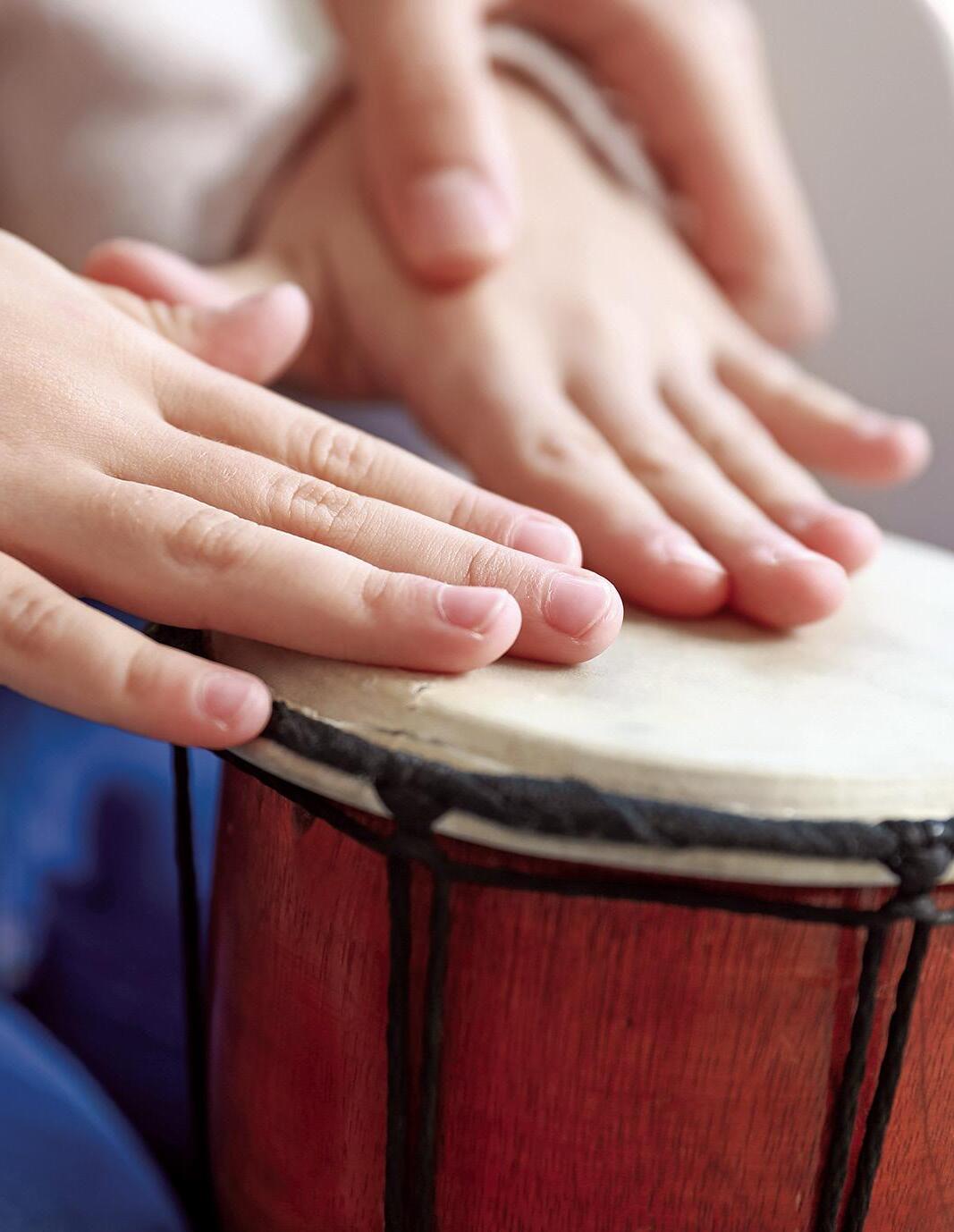
Winner: Arts Umbrella
Runners Up: Place Des Arts, Chorus & Clouds
BIRTHDAY PARTY LOCATION
Winner: Chorus and Cloud
Runners Up: Granville Island Kids Market, Kidtropolis
SUMMER CAMP
Winner: STILLWOOD
Runners Up: Richmond Martial Arts, Arts Umbrella
OVERNIGHT CAMP
Winner: Camp Qwanoes
Runners Up: Zajac Ranch for Children, Sasamat Outdoor Centre
RECREATION CENTRE
Winner: Hillcrest Community Centre
Runners Up: Guildford Recreation Centre, Water Mania (Richmond)
Favourite Personal Service
OPTOMETRIST
Winner: Main Street Optomentry
Runner Up: Westwood Eyecare
ORTHODONTICS
Winner: PDG Dental
Runner Up: North Shore Orthodontics
HAIR
Winner: Trims 4 Tots
Runner Up: Great Clips
DAY SPA
Winner: Wild Orange
Runners Up: Big Feet, Spa Utopia
DENTIST
Winner: AARM Dental
Runner Up: PDG Dental
Favourite Food Service
FOOD TRUCK
Winner: Frying Pan Food Truck
Runners Up: Super Thai Food Truck, Disco Cheetah Food Truck
ICE CREAM SHOP
Winner: Rain or Shine Ice Cream
Runners Up: Earnest Ice Cream, La Casa Gelato
HAMBURGERS
Winner: Between 2 Buns
Runners Up: DownLow Burgers, Hundy
PIZZA
Winner: Pizzeria Farina
Runners Up: Via Tevere Pizzeria, Did’s Pizza
VEGAN
Winner: MeeT on Main
Runners Up: Lotus Seed Vegan, The Acorn Restaurant
FAMILY DINING
Winner: Rocky Mountain Flatbred Co.
Runners Up: Pepino’s Spaghetti House, Sal y Limon
FOOD PREP SERVICE
Winner: Hello Fresh
Runners Up: Chef’s Plate, Fresh Prep
Fall 2023 25
Whether your family loves to be scared silly at Halloween or prefers the lighter side of the season, there’s something for everyone this fall!
Cirque du Soleil
October to December | cirquedusoleil.com

Circus and acrobatics show at Vancouver’s Concord Pacific Place between October and December in 2023. Performances include acrobatics shows, music, dance and all kinds of amazing and jaw-dropping entertainment.

Grave Tales
at Fort Langley National Historic Site
October/November
parks.canada.ca/lhn-nhs/bc/langley/ activ/calendrier-calendar
Join expert storytellers for a two- or three-hour program of spine-chilling stories, as you walk through the Fort Langley village at night. Offered October 14–16, 21–23, 28–30 and November 4–6. The Youth Edition is from 6–8pm, Saturdays and Sundays. Purchase tickets in advance by emailing FTLtickets-billetsFTL@pc.gc.ca.

Fright Nights Return
October 6 to 31 | frightnights.ca
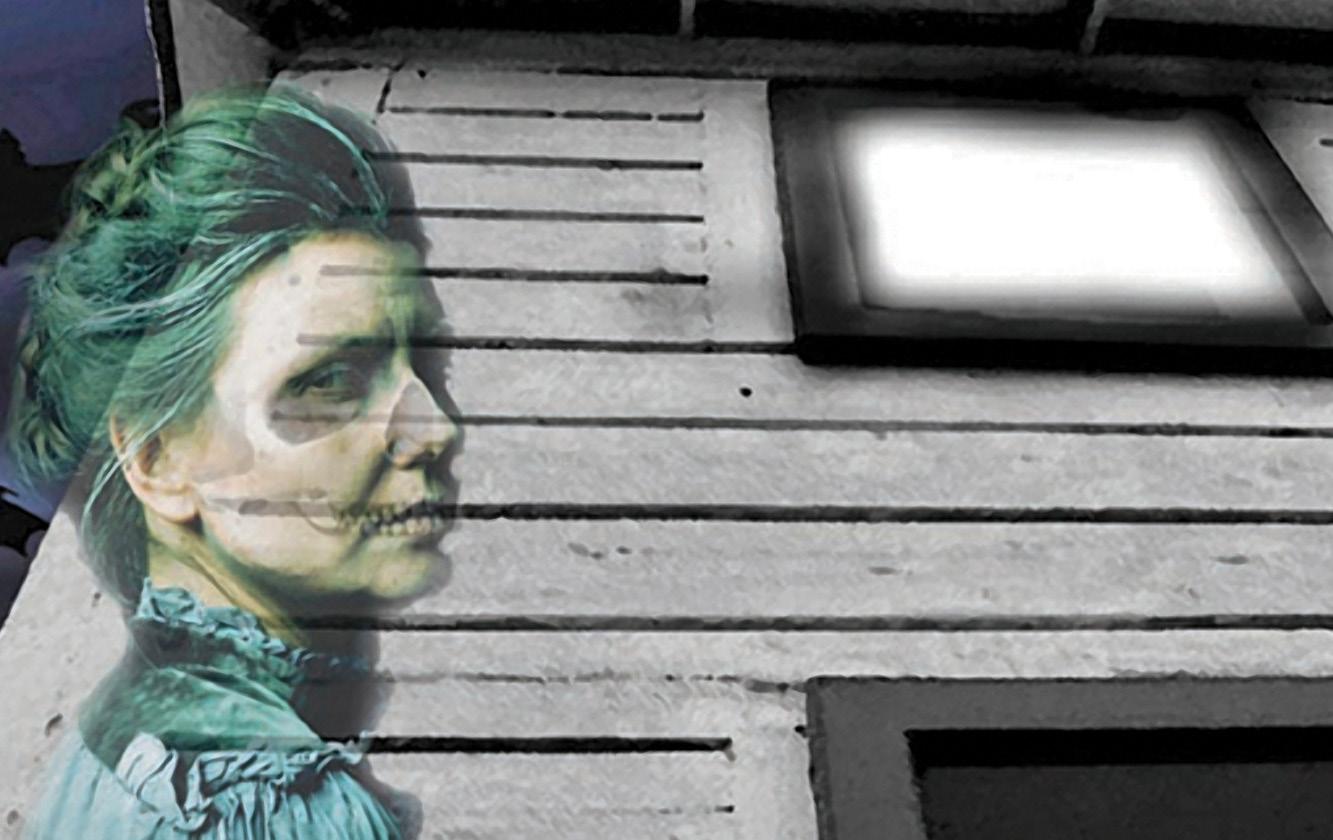
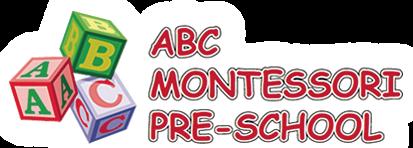
Don’t be afraid. From October 6-31, the PNE’s Fright Nights will once again be transformed into a terrifying Halloweenthemed experience with haunted houses, rides, creepy décor, and live performances. Check out the new haunted house, The Void, and the return of Carn-Evil! Fright Nights is recommended for people 13 years and older.
Play
PLAY
SPOTLIGHT ON LOCAL PRESCHOOLS LICENSED PRESCHOOL
based learning in a warm and nurturing environment. surrey.ca/preschool
abcmontessoripreschool.com 604-879-5437 abcmontessoripreschool@gmail.com We provide programs that enable children to grow mentally, emotionally and socially. Most programs are presented through play, music and movement. 26 WestCoast Families .com mofp.org Play & Learn Preschool Imagine! Explore! Discover! Experiment!
| 604-501-5100



In Pursuit of Their Own Normal Put Your Phone (Far) Away 4 Conversations to Have About Social Media
The Pursuit of Their Own Normal
Abrilliant friend of mine has a magnet on her fridge that looks like an advertisement and it states in bold lettering, “I am the expert in my own normal.”
As a sexuality educator, I think this magnet could be the mantra for adolescence.
In the classes I am lucky enough to teach, students ask questions in genuine pursuit of normalizing their rapidly changing feelings, bodies and experiences. Whether students are asking questions about crushes, sexual orientation, gender identity, periods or genitals; they’re searching for information to affirm themselves as normal.
One of the greatest fears youth harbour is that their feelings, bodies and experiences are every thing but normal. This is completely understandable when the one constant through this high pressure stage of life is change and often just as they become acquainted with their normal, things suddenly shift and they begin the process again.
As adults, one of the most impactful life learnings we can offer youth is to help them develop the understanding of their own normal. Their own normal will evolve as they learn and grow. As adults, we know that learning and trusting your own normal is central to our well-being and connection to others.

A simple yet effective practice that will promote expertise in their own normalcy is body literacy. Some of you may be wondering if body literacy is yet another newfangled term straight out of our pandemic vocabulary such as “circle back, pivot and zoom fatigue?”
It’s not!
Body literacy simply refers to being educated about and familiar with your body and its processes. Being body literate involves using
observation, knowledge and supporting resources to better understand and accept our own normal and engage in healthful practices for well-being.
As parents and adult allies, we can best support our youth with body literacy skills by reminding them to observe their own bodies and take notice of the changes they’re experiencing. We can engage and encourage youth in conversations about the changes they’re noticing with curiosity and without judgement.
Are they experiencing a long-hoped-for growth spurt or have they started a cycle bleed/period—what’s different than they expected or it was last year? A curiosity-based approach helps youth to adjust to the changes they experience with greater acceptance of bodies and their many functions as healthy and natural rather than weird and shameful.
Observation helps our youth to recognize when their bodies are feeling or working differently than they have before. This recognition helps them to know when they may need more information and when they may need to ask for outside support to manage. These observations will also help a health care provider with follow up care if it’s necessary.
Helping our youth increase their body literacy also involves making sure they have a solid level of factual knowledge to understand not only their bodies but the bodies of their peers, friends and potential partners. When youth hold factual knowledge, they are better able to compare their observations and follow through any gaps between what they’ve observed and what they understand to be happening.
Ensure that youth understand all of the
anticipated developments and ways to manage these changes as they present (i.e. pubic hair, chest tissue development and periods, etc.) whether they will happen specifically to their own body or not.
Creating space for community-held knowledge is one of the reasons current schoolbased sexuality education sessions involve youth of all sex assignments and gender identities together in sessions. Commonly held knowledge encourages responsibility, compassion and empathy and normalizes all bodies and experiences.
In order for body literacy to be a useful skillset, we must partner observation and factual knowledge with an inventory of local reliable, accessible community health resources for youth. Offering youth resources such as youth centred websites, texting lines, print materials and access to community-based clinics for youth will support their factual knowledge and help translate their skills and knowledge into action should their observation and knowledge inform them that they require health services for themselves or a friend.
A great place to start for youth-based health resources is an organization called The Foundry (foundrybc.ca) as they offer full service health services for youth in many communities throughout Vancouver Island and elsewhere in B.C.
Observation, factual knowledge and knowledge of youth specific resources make body literacy the ultimate antidote to the fears of not being normal can cause. Body literacy reminds youth that they are ultimately the experts of their own normalcy whether they choose to advertise it on a fridge magnet or not!
28 WestCoast Families .com
4 Conversations to Have About Social Media
Older kids and teens spend more time using digital devices and social media than ever before. The increase in screen time causes many parents and caregivers to worry about how kids’ online activities are affecting their physical, mental and emotional health.
A healthy relationship with screens depends on the types of activities kids are doing online as well as balancing screen time with other activities like sleep, connecting with family and friends, exercise and time outdoors. Screen time limits for older kids and teens can be helpful—but how they are using screens (versus for how long) is even more important. Plus, family conflicts over screen time may be more harmful to children’s mental health than the screen time itself.
Try the tips and questions to have conversations with kids about their screen time habits.
1. Show interest in what they’re doing online.
Try not to be judgmental about what kids and teens do online. If they sense you’re truly interested, they’ll be more open to sharing. If your older child or teen is reluctant to talk about what they’re doing online, try signing up for one of the popular platforms (TikTok, Snapchat, etc.), then ask them to teach you how to use it. Understanding what kids and teens are doing online is the first step in guiding them toward healthy experiences.
Ask:
What’s your favorite app or game right now?
Can you show me how it works?
What’s something you like about it? Why?
(For social platforms) What are your favorite accounts or people to follow?
2. Help them recognize their screen time habits.
Sometimes the habits kids have with their devices aren’t the best for their health. The same goes for adults, too! Maybe screen time interferes with sleep, relationships or learning. Talk about how we can use our devices in ways that feel in balance with other parts of life. Share your own habits as examples to get the conversation going.
Ask:
What are some of our family’s habits with devices like phones or TV? (Share a few ex-
amples, like checking your phone when you wake up, or playing video games before bed.)
Do any of our habits get in the way of things like sleep, spending time with friends and family or getting outside?
Are there any habits we should try to change? Why or why not?
Can you think of any specific times we could take breaks from our devices?
3. Talk about their emotional health.
Help older kids and teens recognize how online activities make them feel. Many teens turn to social media and online resources for mental health support and to connect with friends. However, social media can also have negative effects on some teens, especially girls and teens experiencing depression.

Ask:
How do you feel when you’re on Instagram (or another app)?
Do you ever feel uncomfortable, worried, sad or anxious?
If yes: What makes you feel that way?
Do you ever feel like you’ve spent too much time online?
If yes: When?
If no: Why not?
Do you ever feel pressured to be online?
If yes: When do you feel pressured? Why?
If no: Why not?
4. Talk about what to do when they have negative feelings or want to set new screen time habits.
Talk through different strategies kids can try when they notice themselves feeling uncomfortable, worried, sad or anxious when they’re online. And remind them that they can always come to you (or another trusted adult) if they need help.
Ask:
Have you ever set time limits for yourself when you’re online?
If yes: How did that go?
If no: Do you want to try it? I could help. Are there ways to connect with your friends in person more often to take the pressure off being online all the time?
Do you know how to block someone on your favorite apps?
If no: Can we look together and figure out how?
Common Sense Media offers the largest, most trusted library of independent age-based ratings and reviews. Our timely parenting advice supports families as they navigate the challenges and possibilities of raising kids in the digital age.
Put Your Phone (Far) Away
Can you look someone in the eye and type on your phone at the same time—without your split attention being detected?
If you’re like most of the college students interviewed for writer Sherry Turkle’s New York Times’ article “Stop Googling, Let’s Talk,” you can.
The skill—one the students say they mastered in middle school when they wanted to text in class without getting caught—has evolved, writes Turkle. “Now they use it when they want to be both with their friends and, as some put it, ‘elsewhere.’”


Turkle has studied “the psychology of online connectivity” for more than 30 years. Her focus: face-to-face conversation. Or, perhaps more accurately, its demise.
“We’ve gotten used to being connected all the time, but we have found ways around conversation—at least from conversation that is open-ended and spontaneous, in which we play with ideas and allow ourselves to be fully present and vulnerable, she writes. But it is in
this type of conversation—through eye contact, being aware of another person’s posture and tone, comforting and respectfully challenging one another—that empathy and intimacy flourish. Without those meaningful, face-to-face conversations, she says, empathy suffers.
“In conversation, things go best if you pay close attention and learn how to put yourself in someone else’s shoes,” writes Turkle. This is easier to do without your phone in hand, she says. Or even in view.
Studies of conversation show that when two people are talking, the mere presence of a phone on a table between them or in the periphery of their vision changes both what they talk about and the degree of connection they feel, she writes.
“People keep the conversation on topics where they won’t mind being interrupted. They don’t feel as invested in each other. Even a silent phone disconnects us.”
To reclaim conversation, we need to first reclaim solitude.
“Some of the most crucial conversations you will ever have will be with yourself, she says. “Slow down sufficiently to make this possible. And make a practice of doing one thing at a time. Thing of uni-tasking as the next big thing.” And think of conversation as one way to practice uni-tasking.
Carve out spaces at home that are devicefree, she says, sacred spaces for the paired virtues of conversation and solitude.
“Families can find these spaces in the day to day—no devices at dinner, in the kitchen and in the car. Introduce this idea to children when they are young so it doesn’t spring up as punitive but as a baseline of family culture. We face a significant choice, she says. It is not about giving up our phones and the other various devices; it’s about using them with greater intention.
“Conversation is there for us to reclaim,” says Turkle. “For the failing connections of our digital world, it is the talking cure.”

30 WestCoast Families .com WINNER 2023 FAMI L Y • F A V RUO I SET •
OCT 28 & 29





VANCOUVER CONVENTION CENTRE EAST BUILDING (UNDER THE SAILS)
EVERYTHING PREGNANCY, BABY & TODDLER UNDER ONE ROOF FOR THE MODERN PARENT









TheBabyShows.com





TheBabyShows

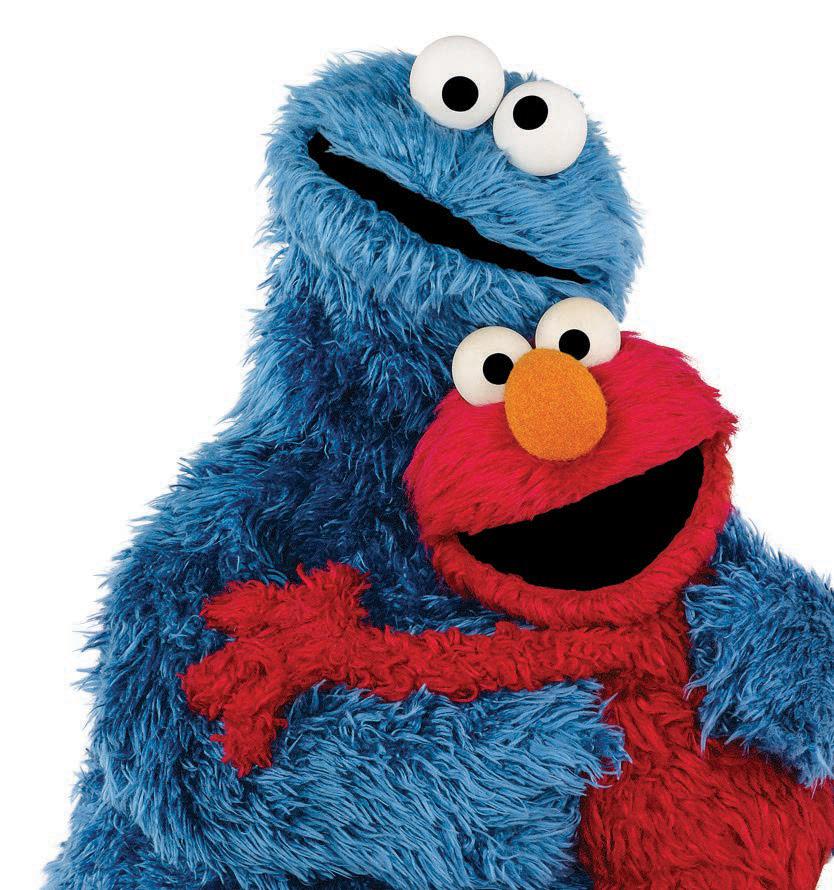
31
™/© 2019 Sesame Workshop
PROMO CODE
BURNABY ONLINE
A PROVINCIAL ONLINE LEARNING SCHOOL
Learn where you want, when you want
Ministry approved BC curriculum Kindergarten to Grade 12 program
Contemporary Indigenous Studies 12 available for enrollment
Full time or part time available Grade 10 to 12
Adult learning options
Grade 8 to 12: over 50 course options
Innovative learning management system
Experienced online learning teachers
Opportunities for self-paced, flexible, convenient learning
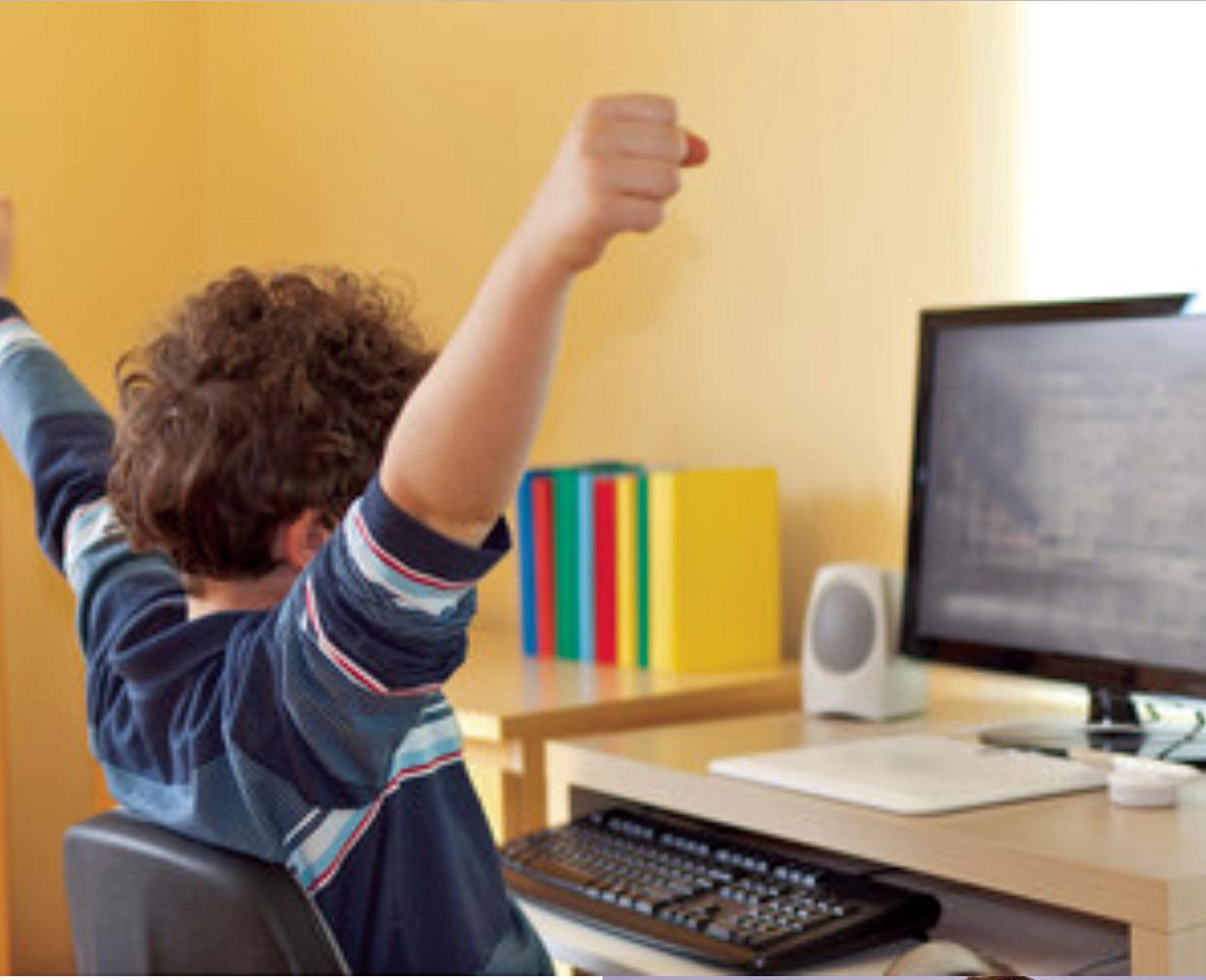
Direct teacher support available
BURNABY SCHOOL DISTRICT ONLINE PROGRAM


Open to all residents of British Columbia online.burnabyschools.ca
Registration: online.burnabyschools.ca/registration
Develop communication and technical online skills registering full-time or for a single course













































































































































